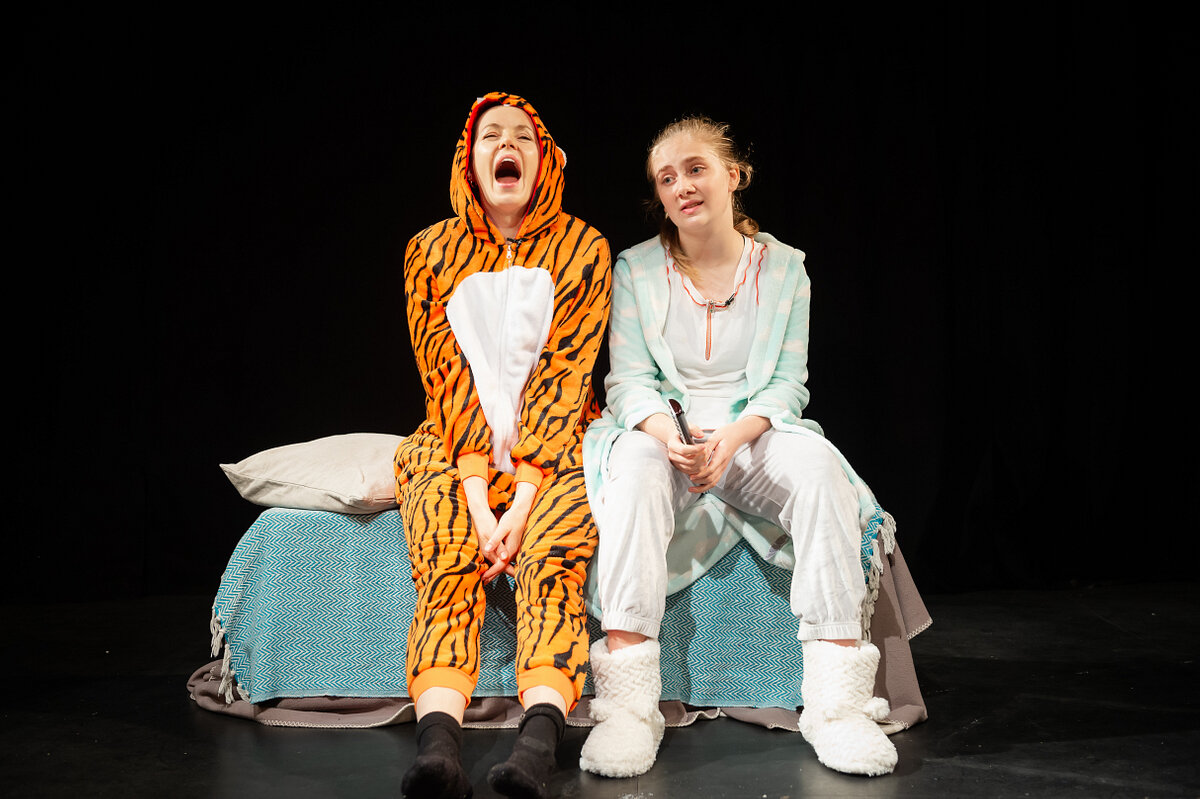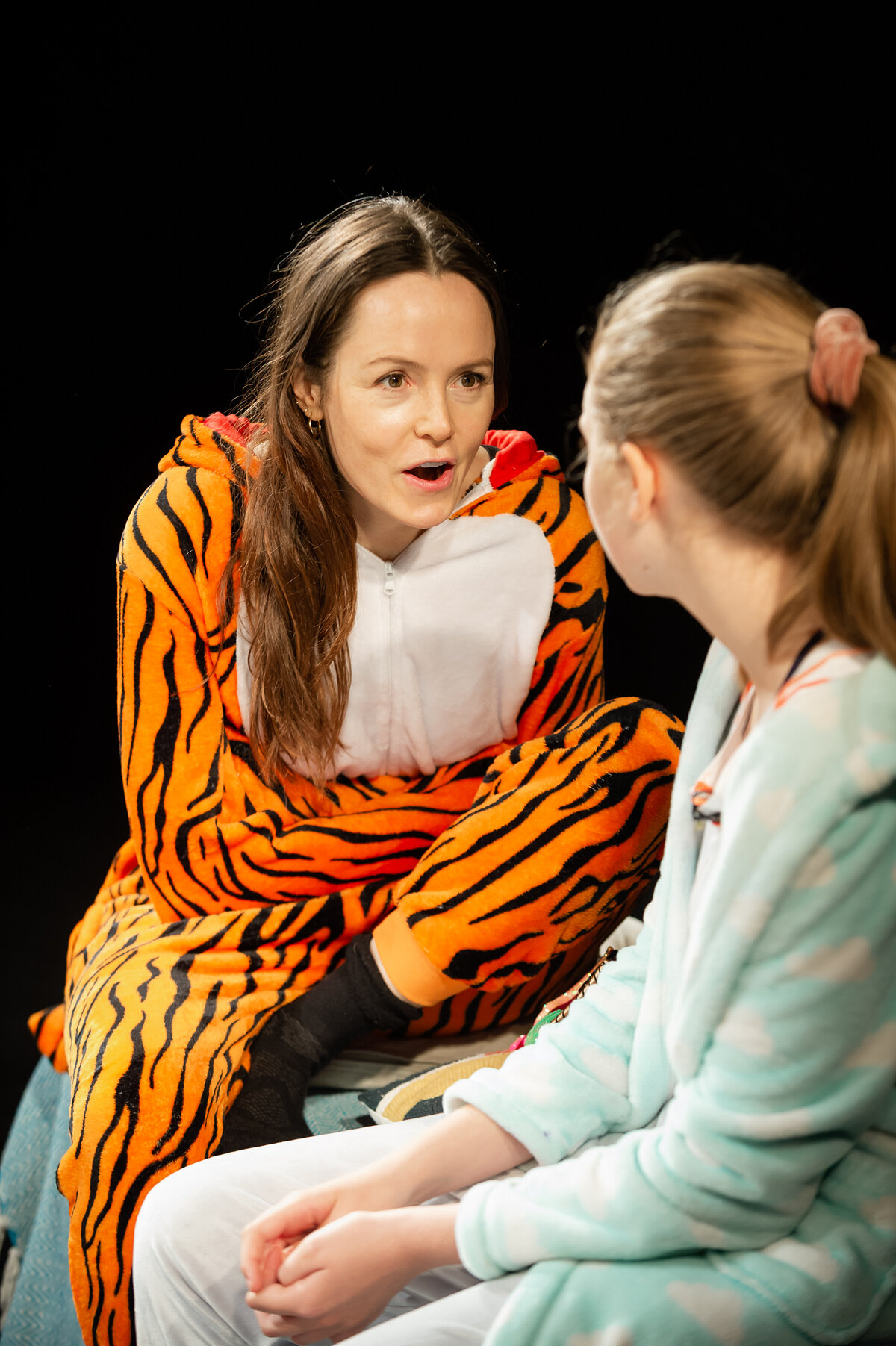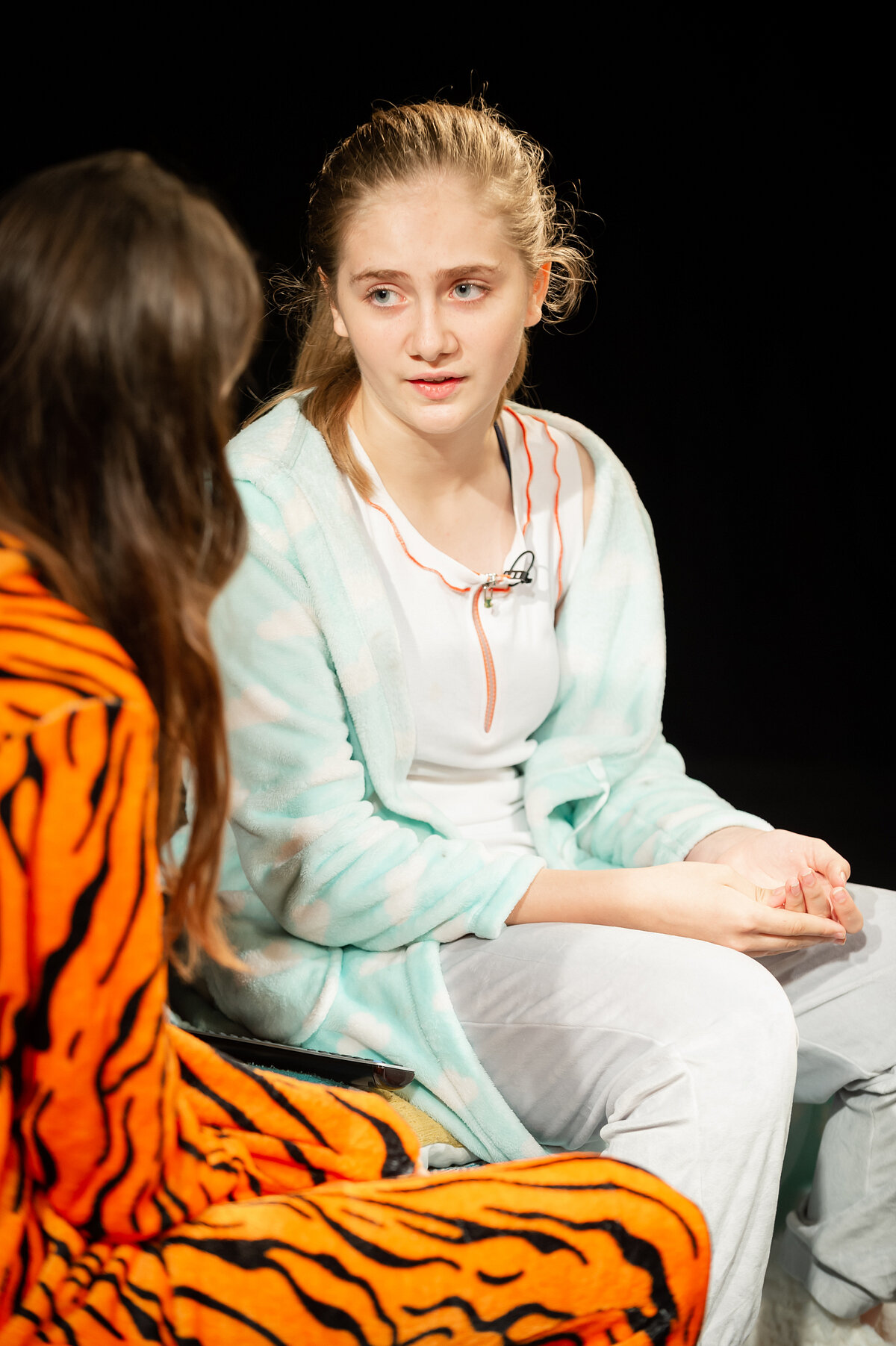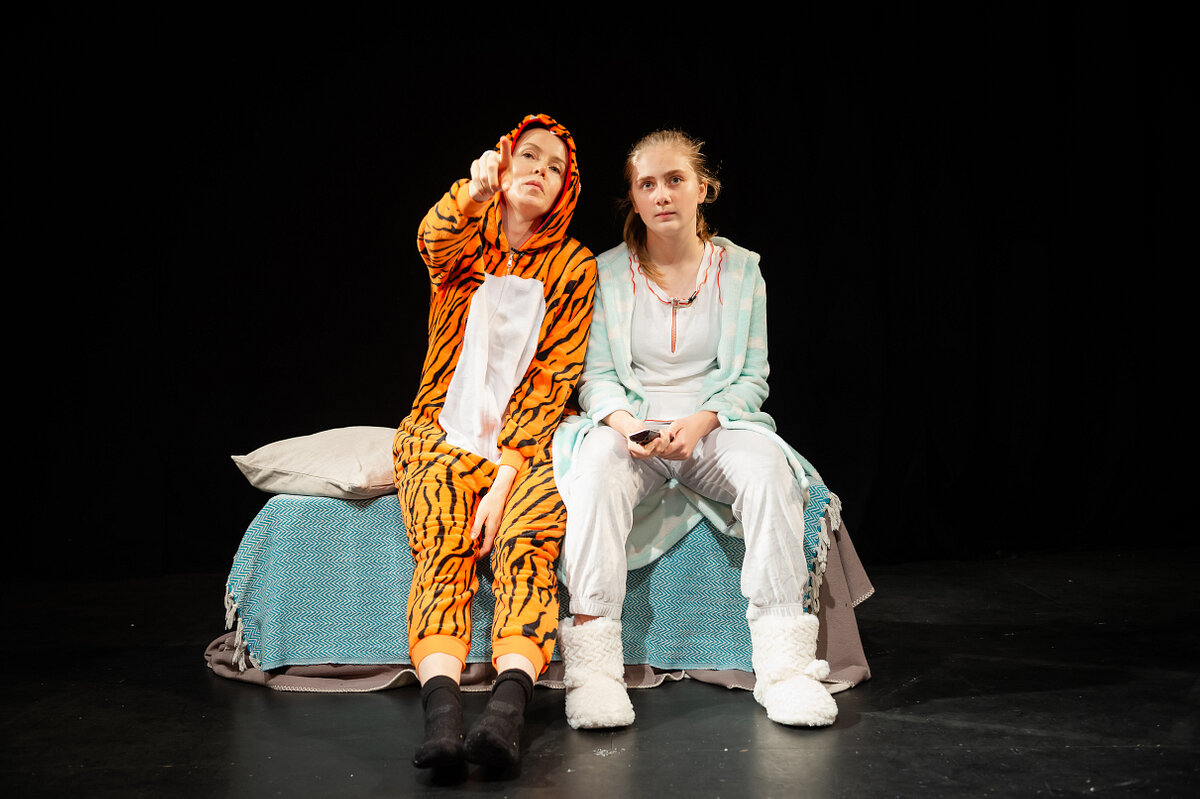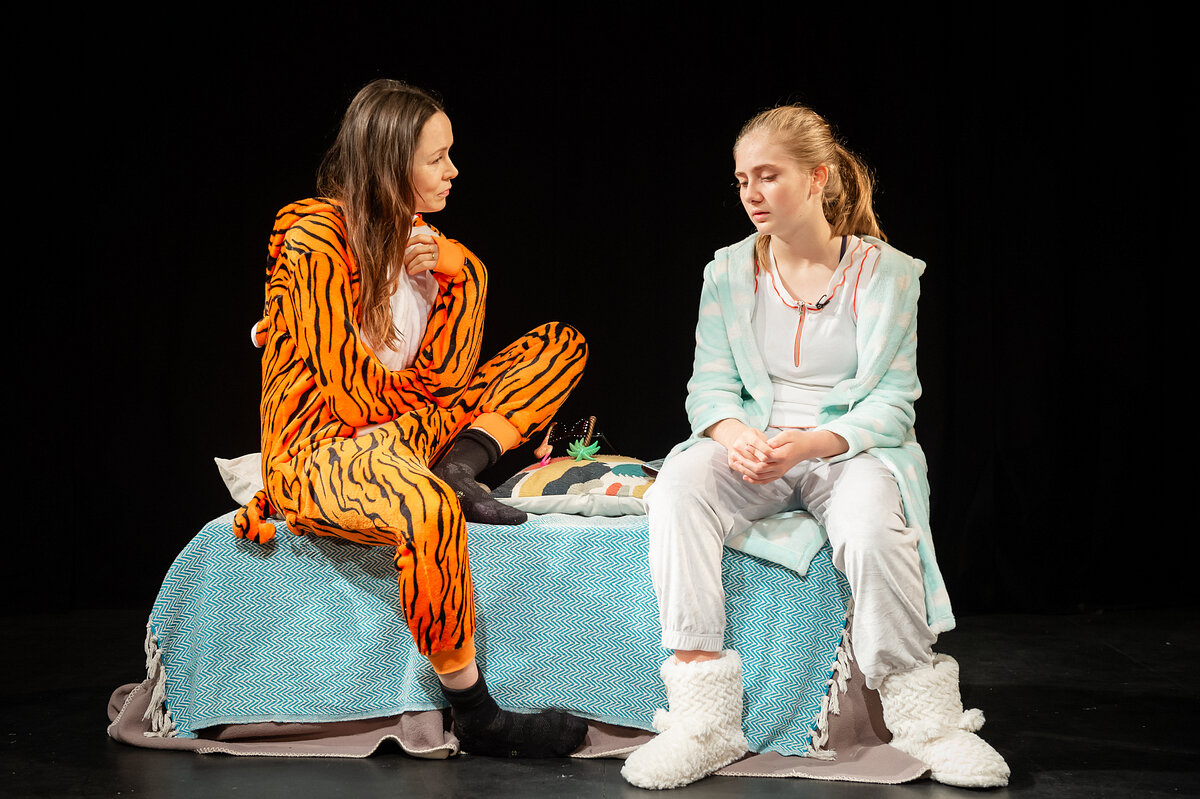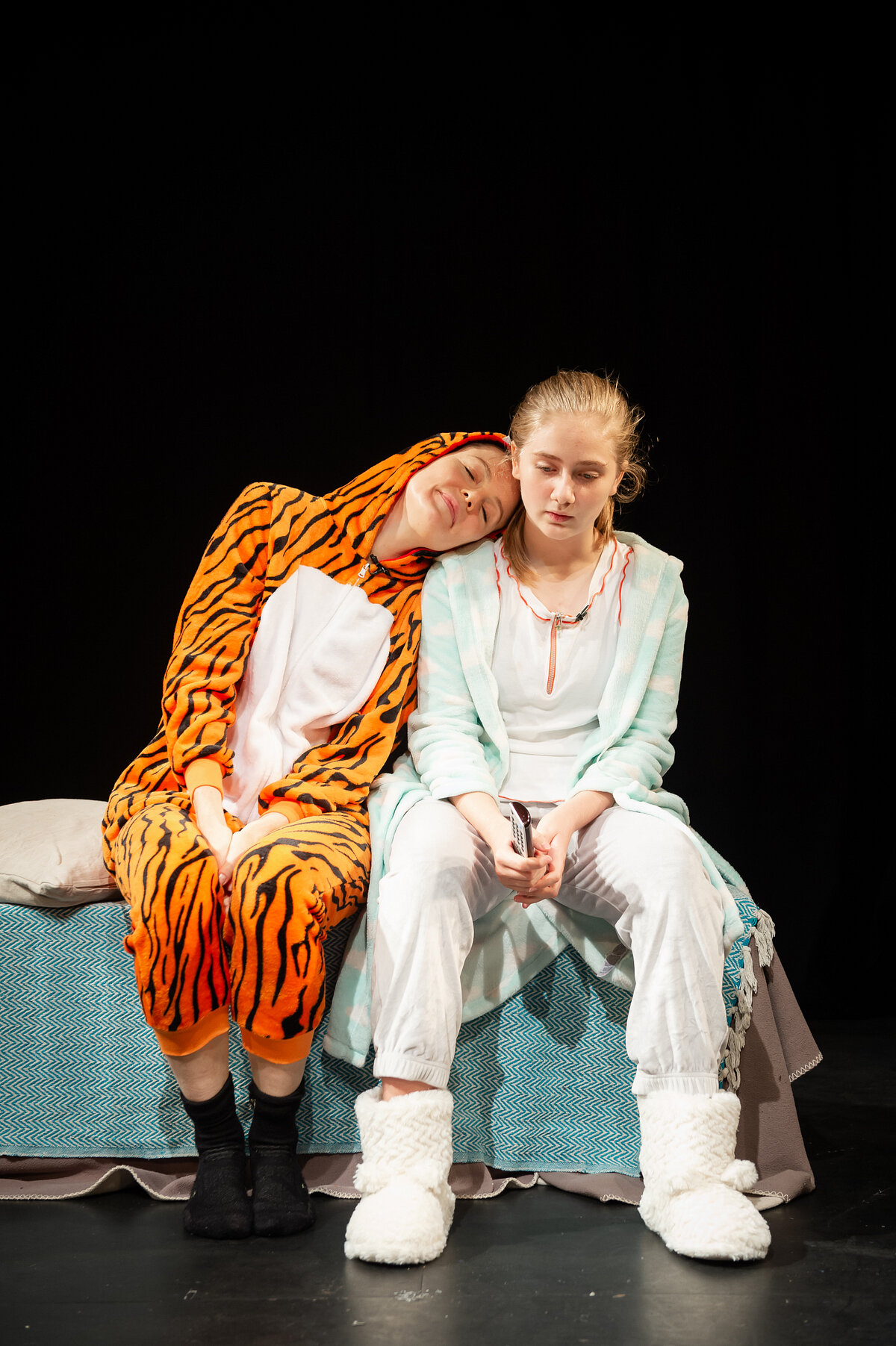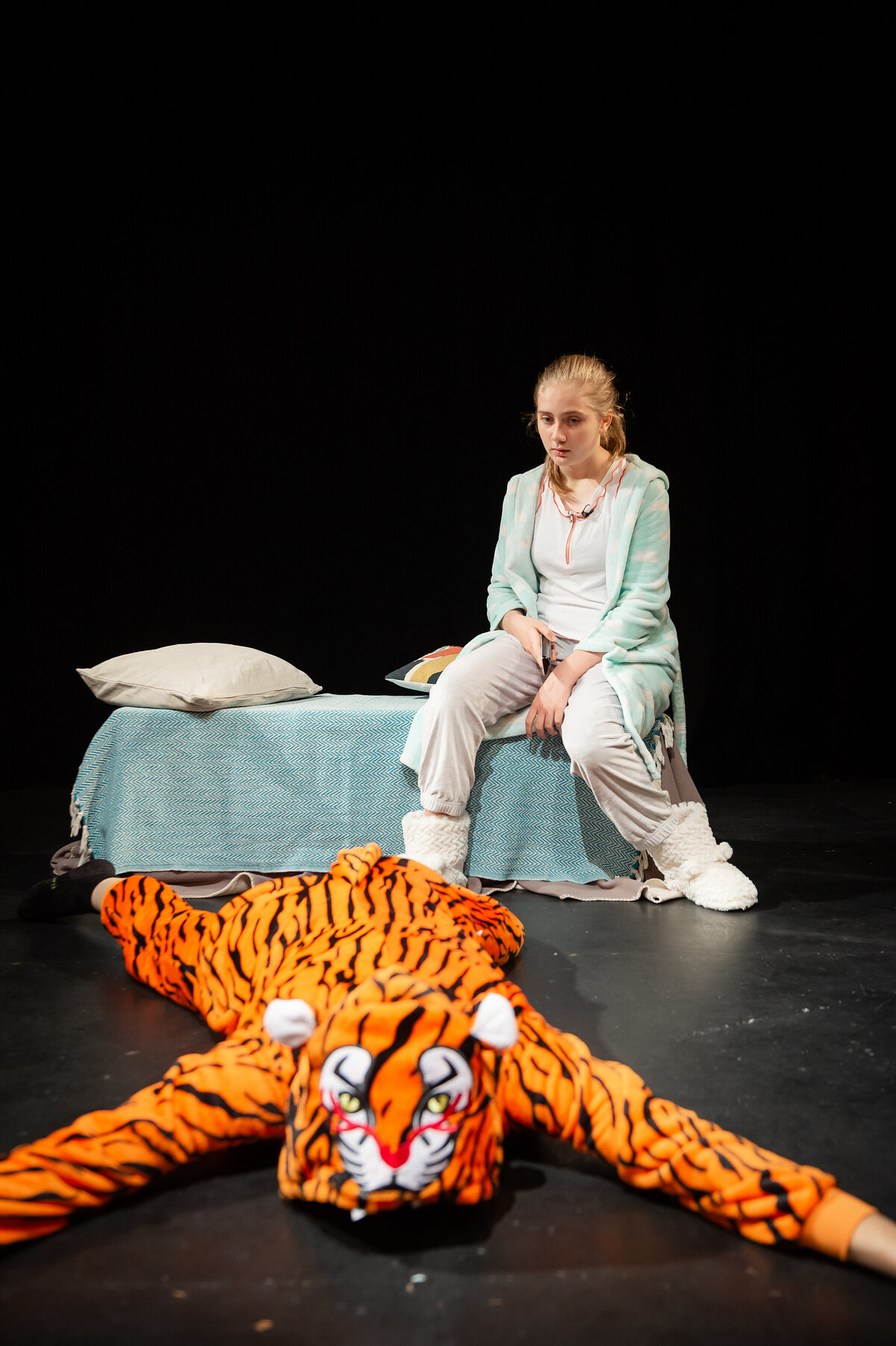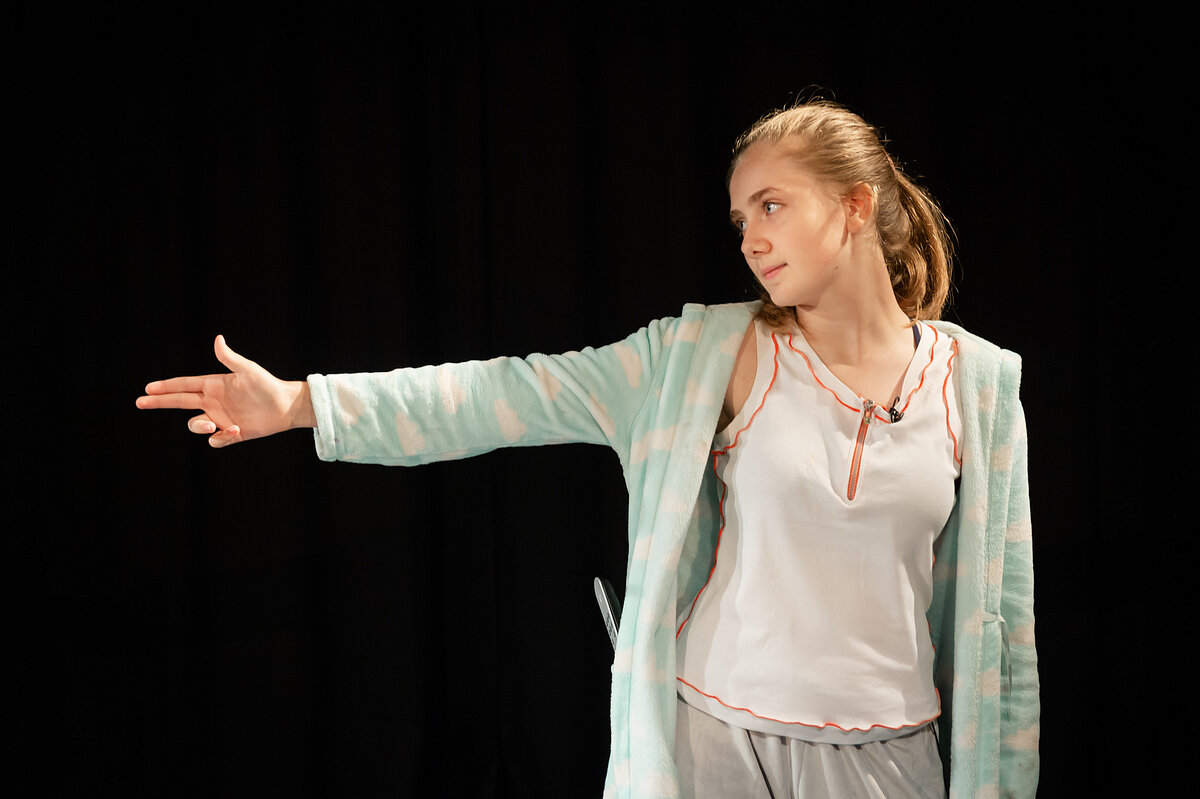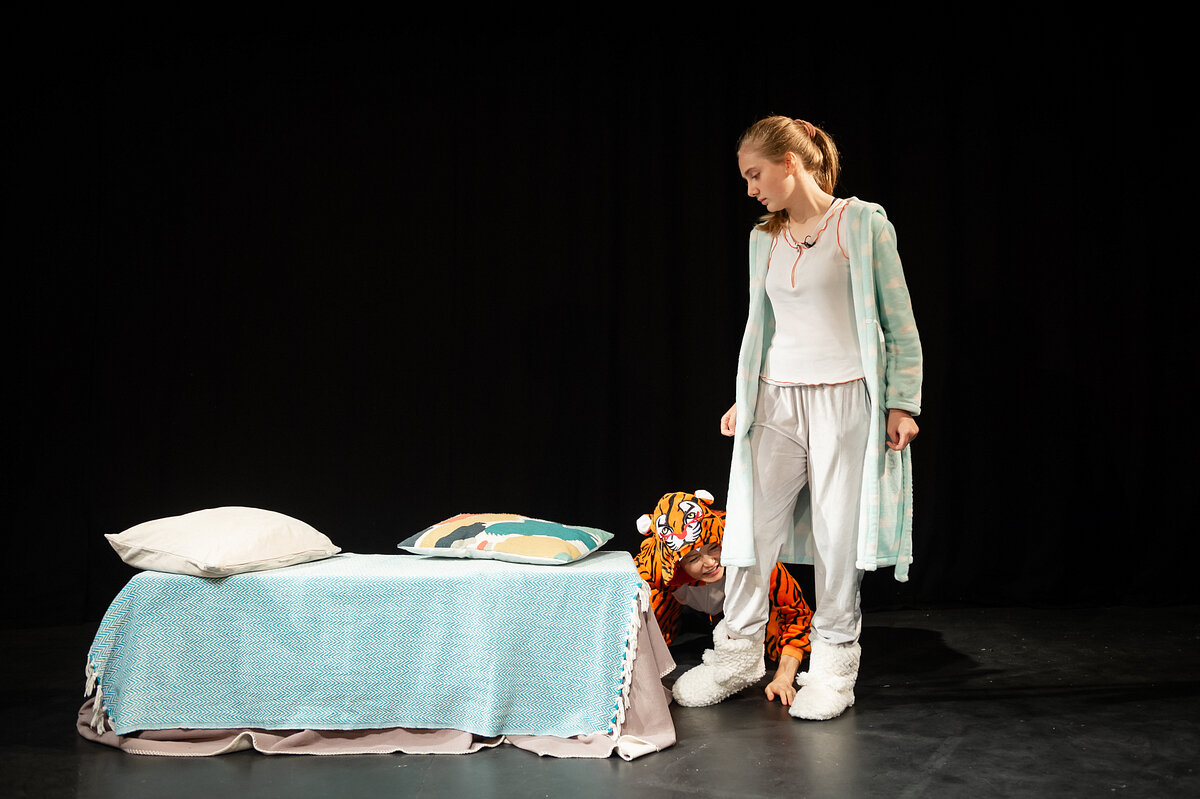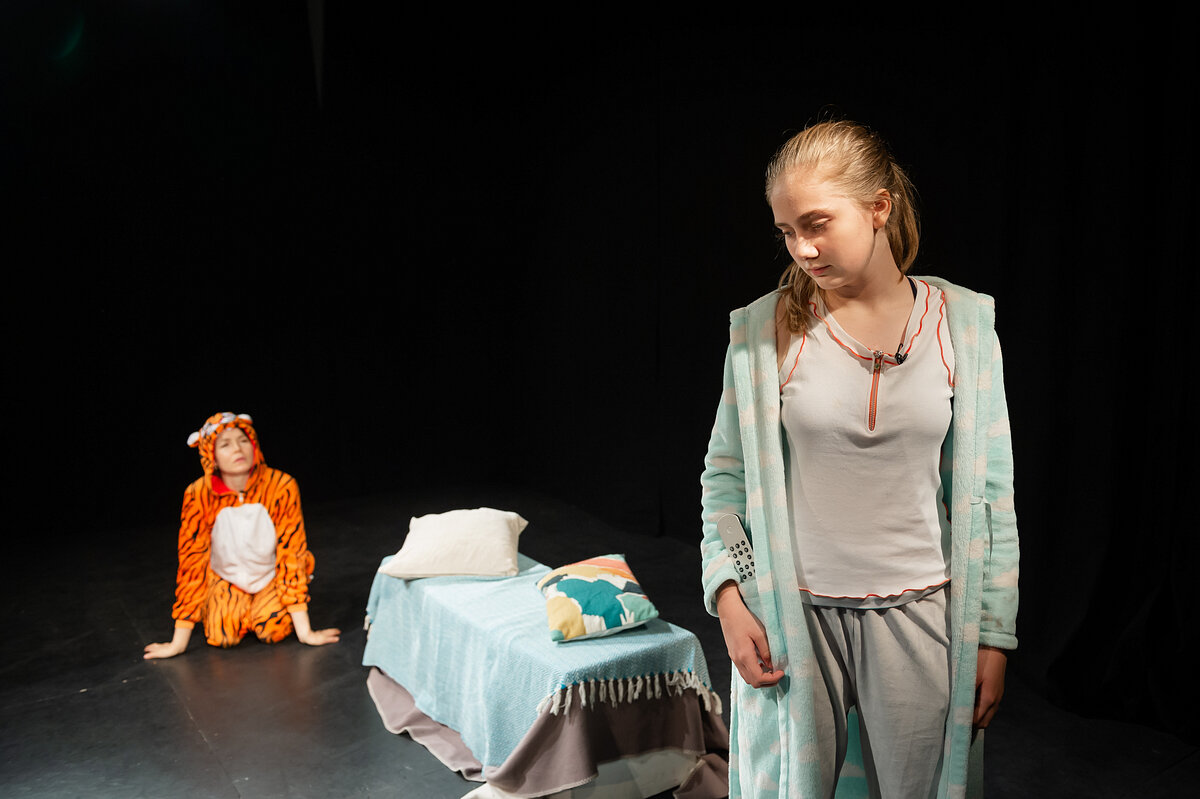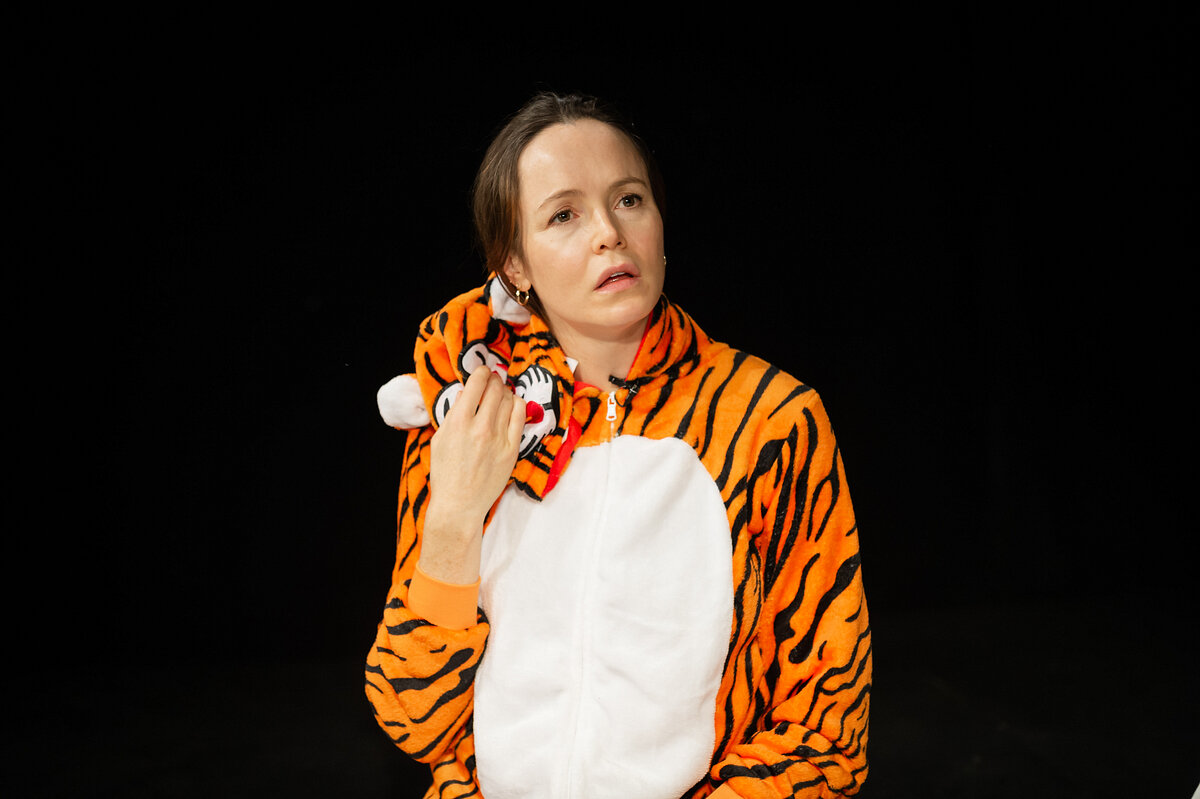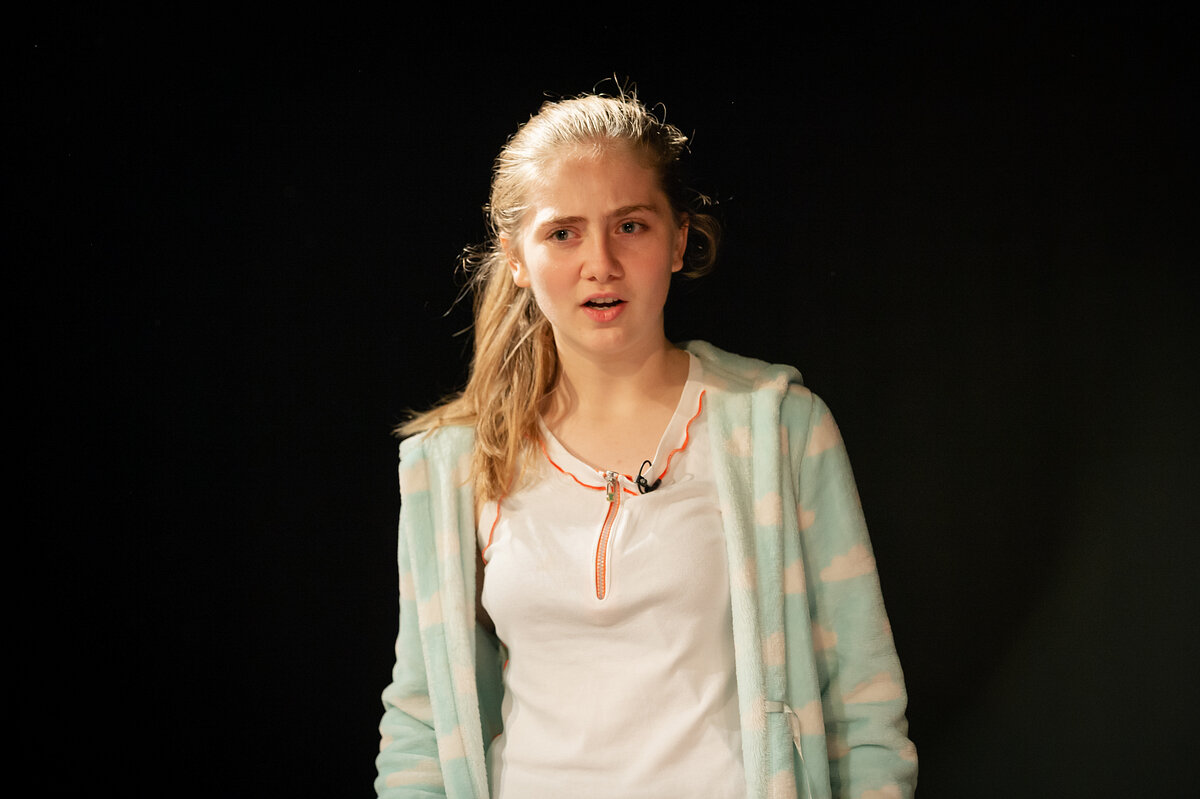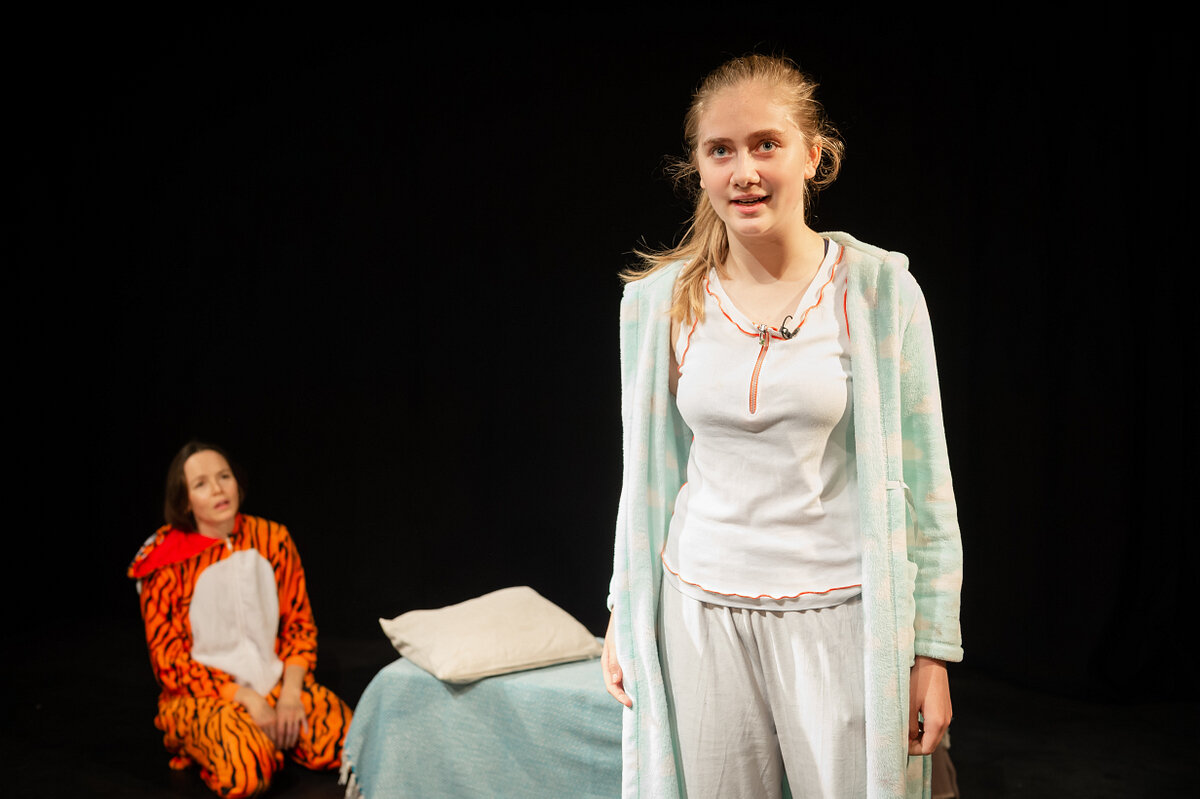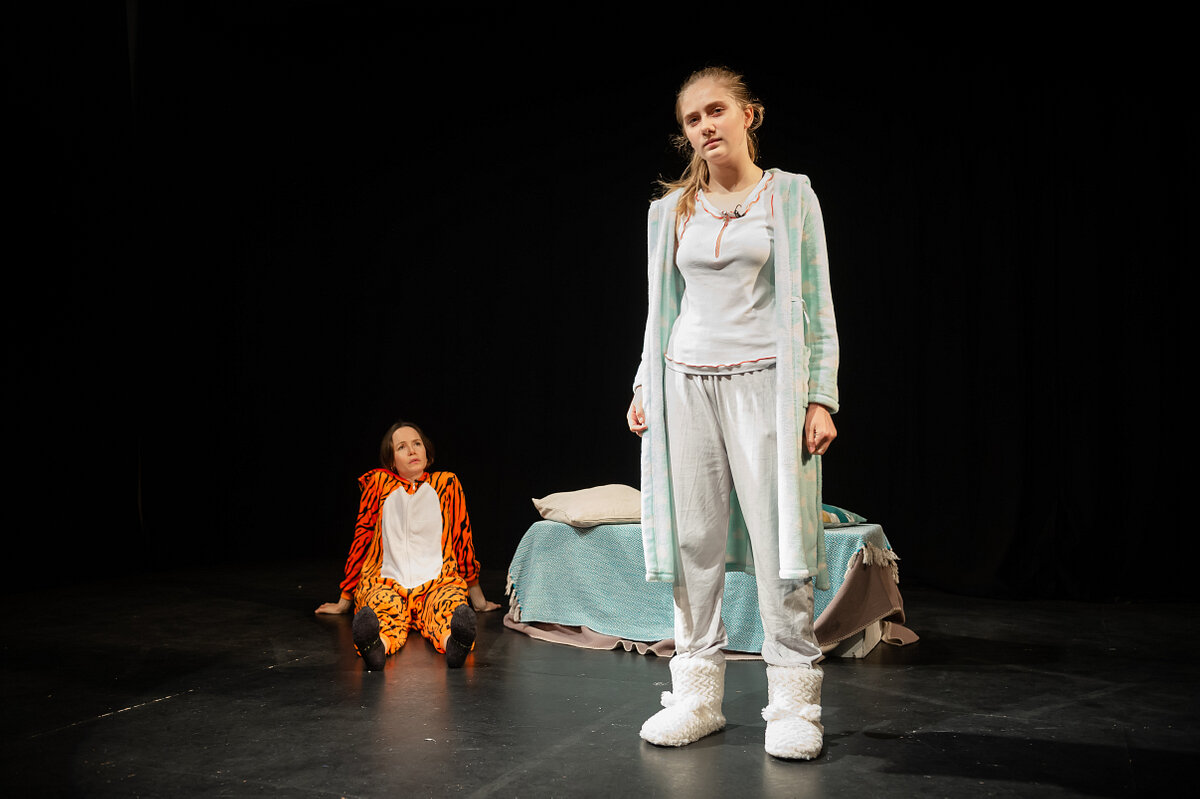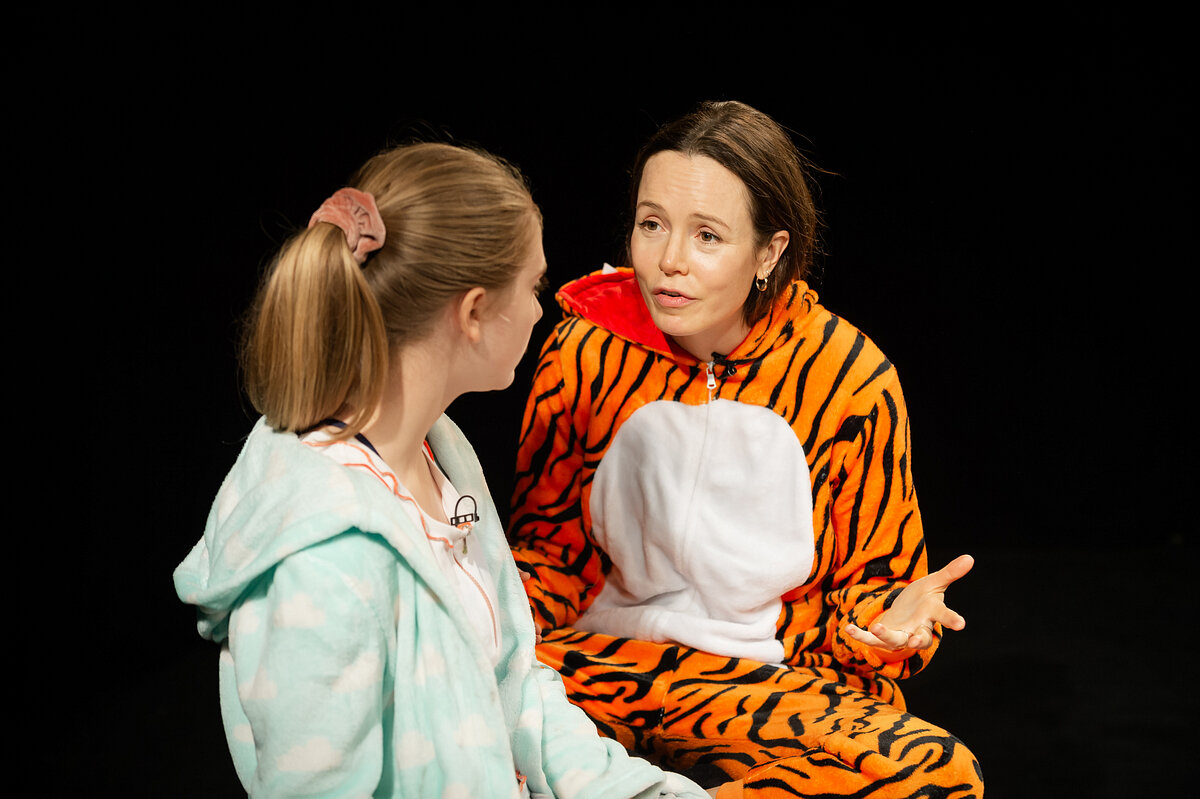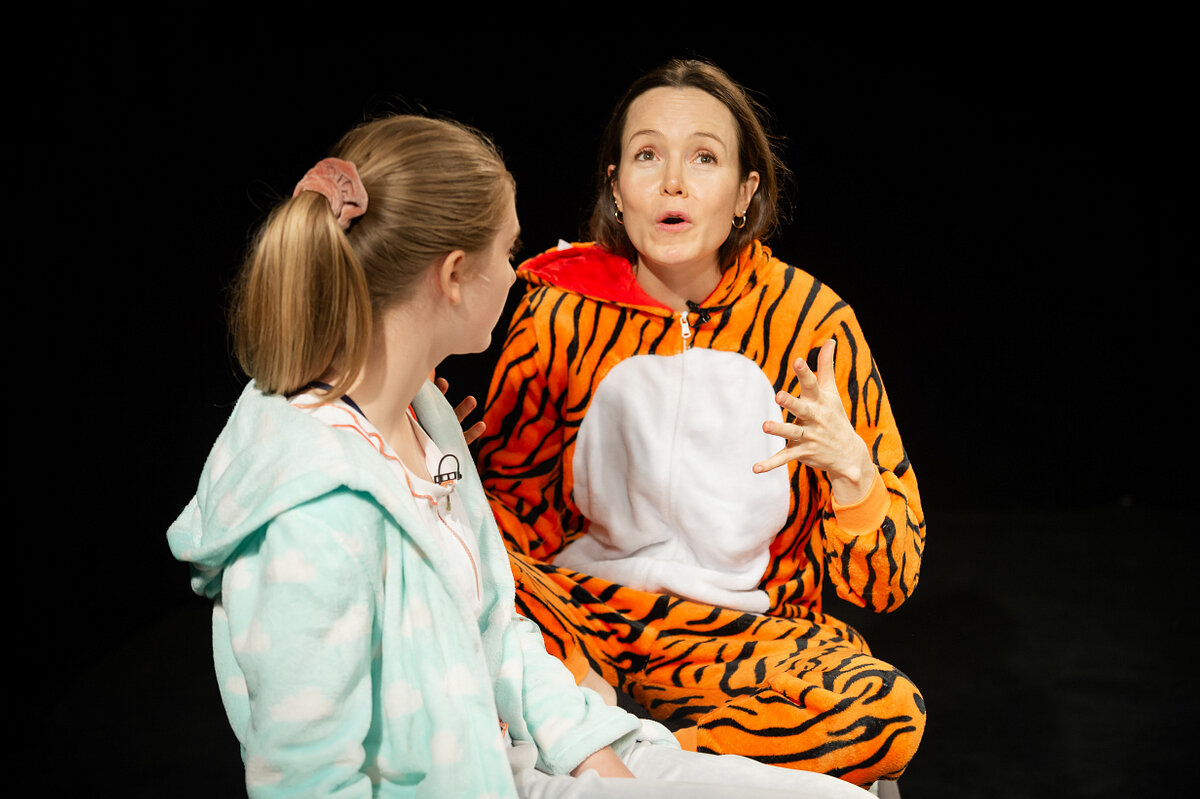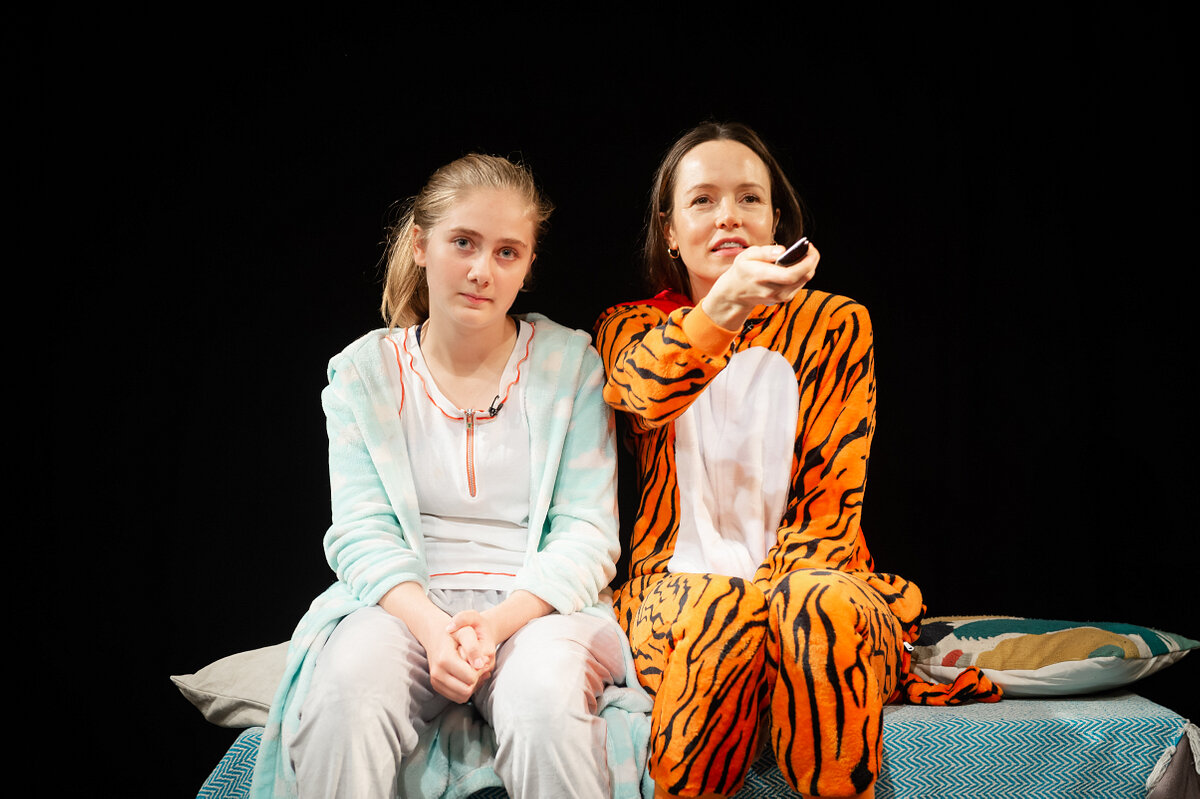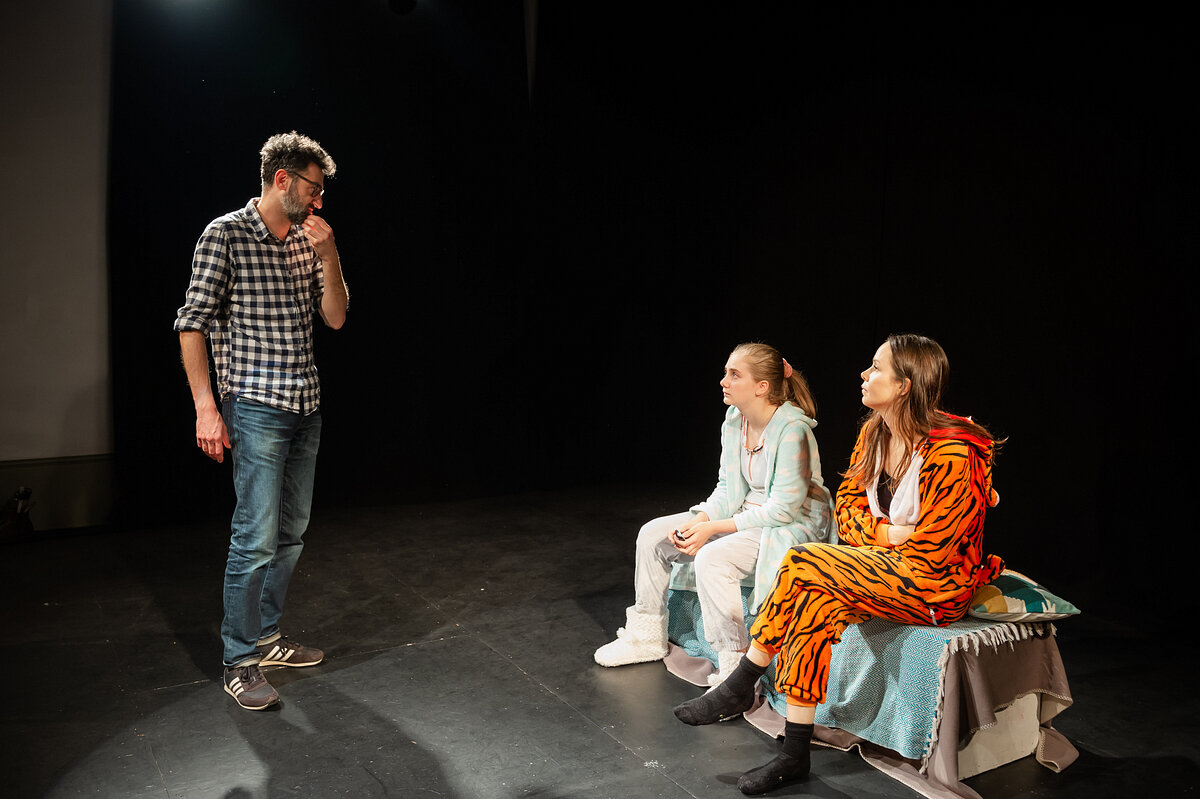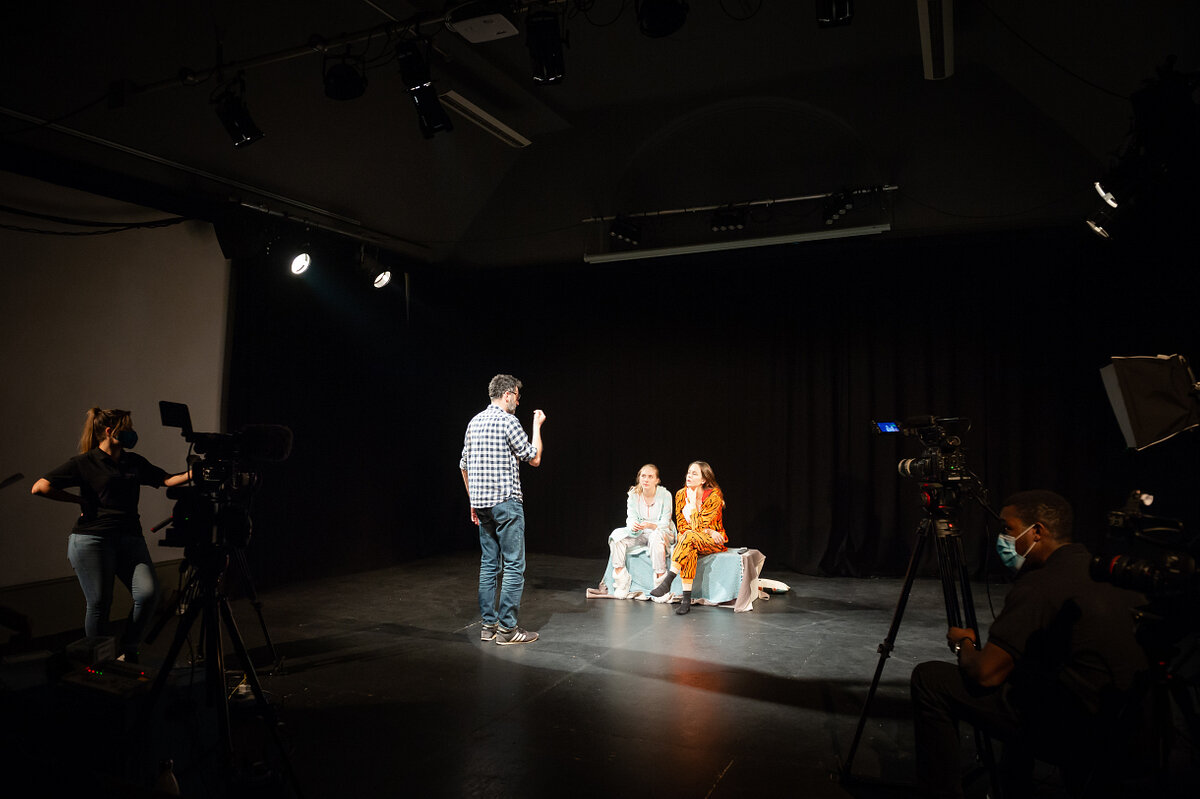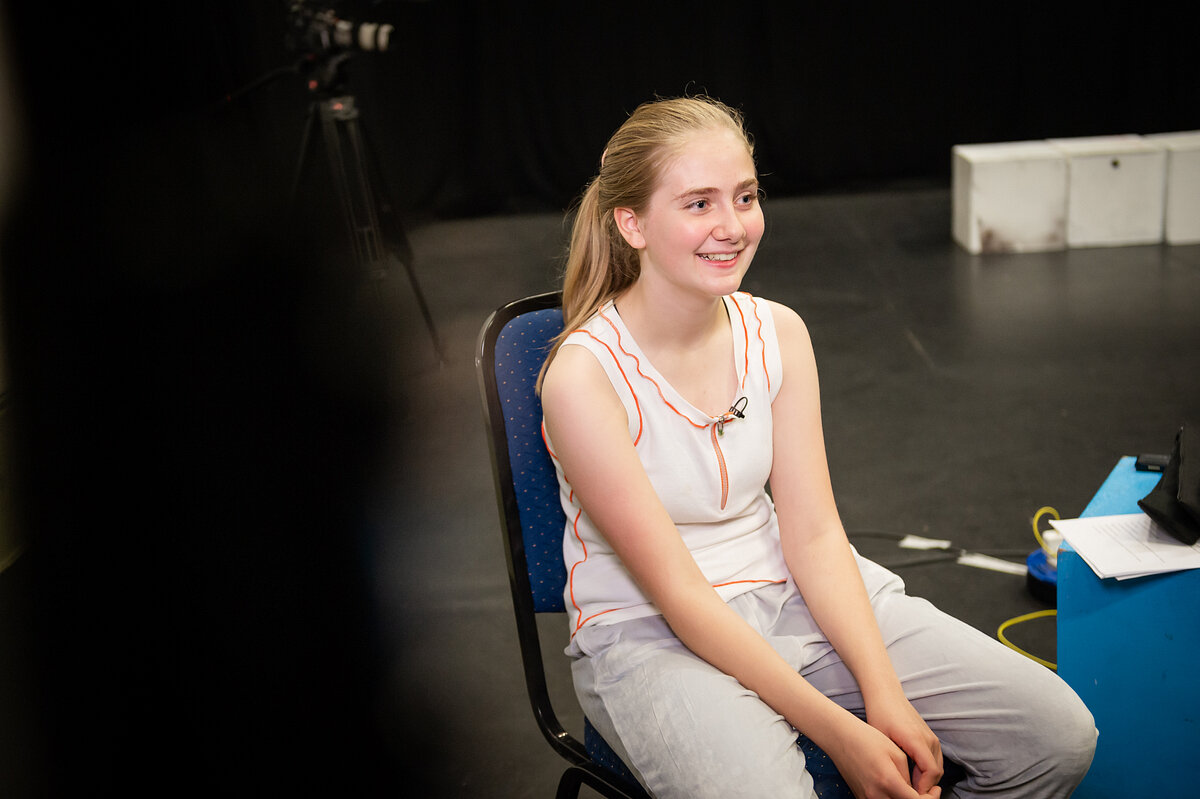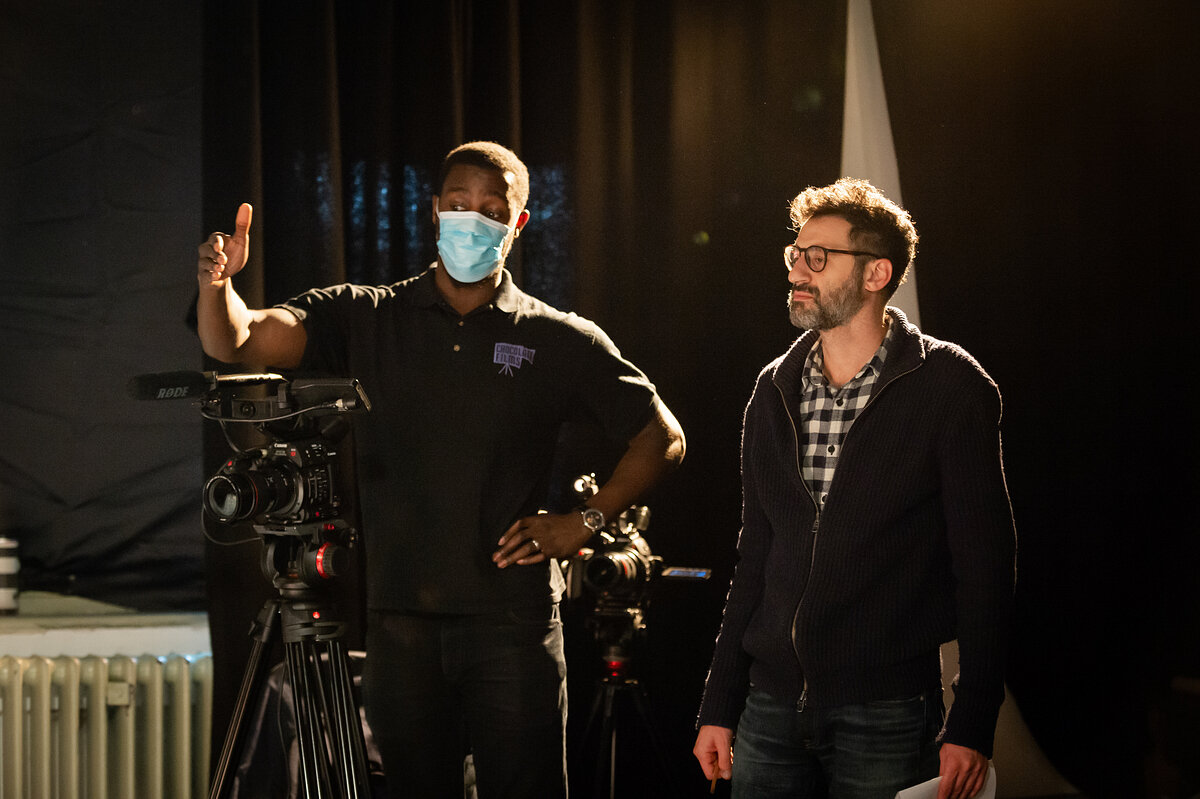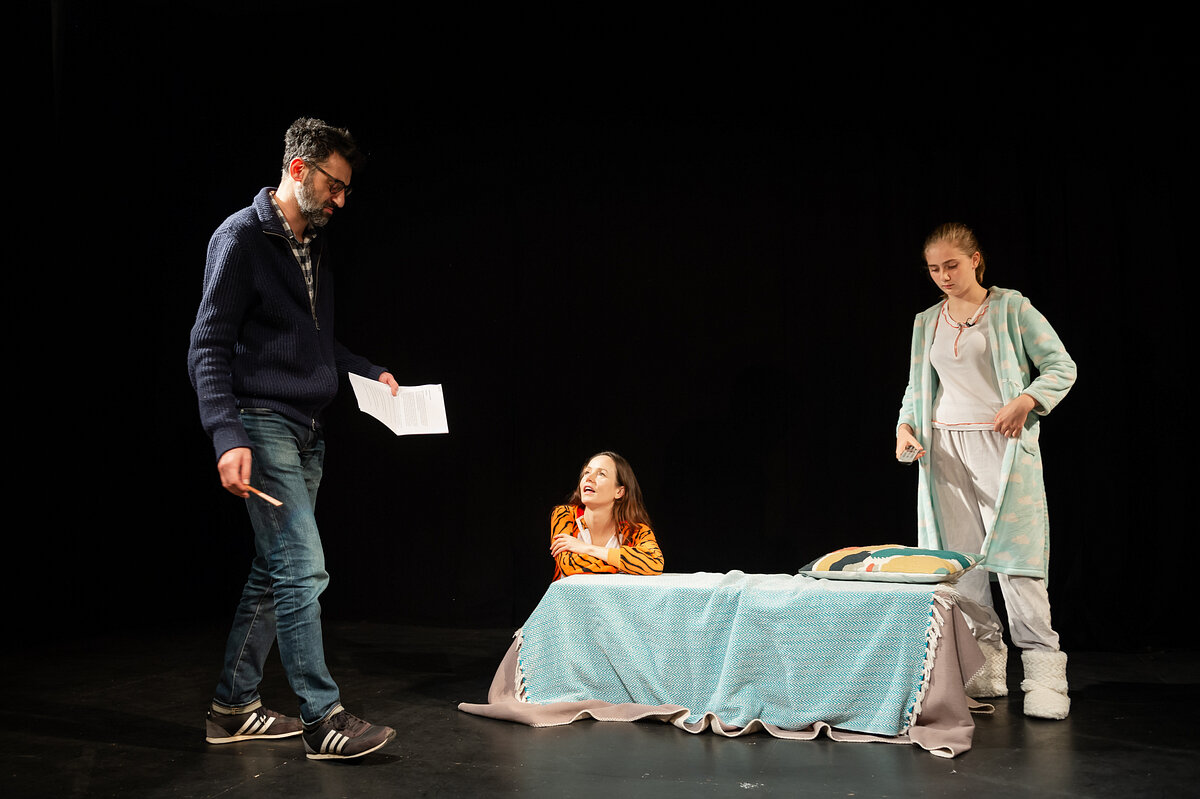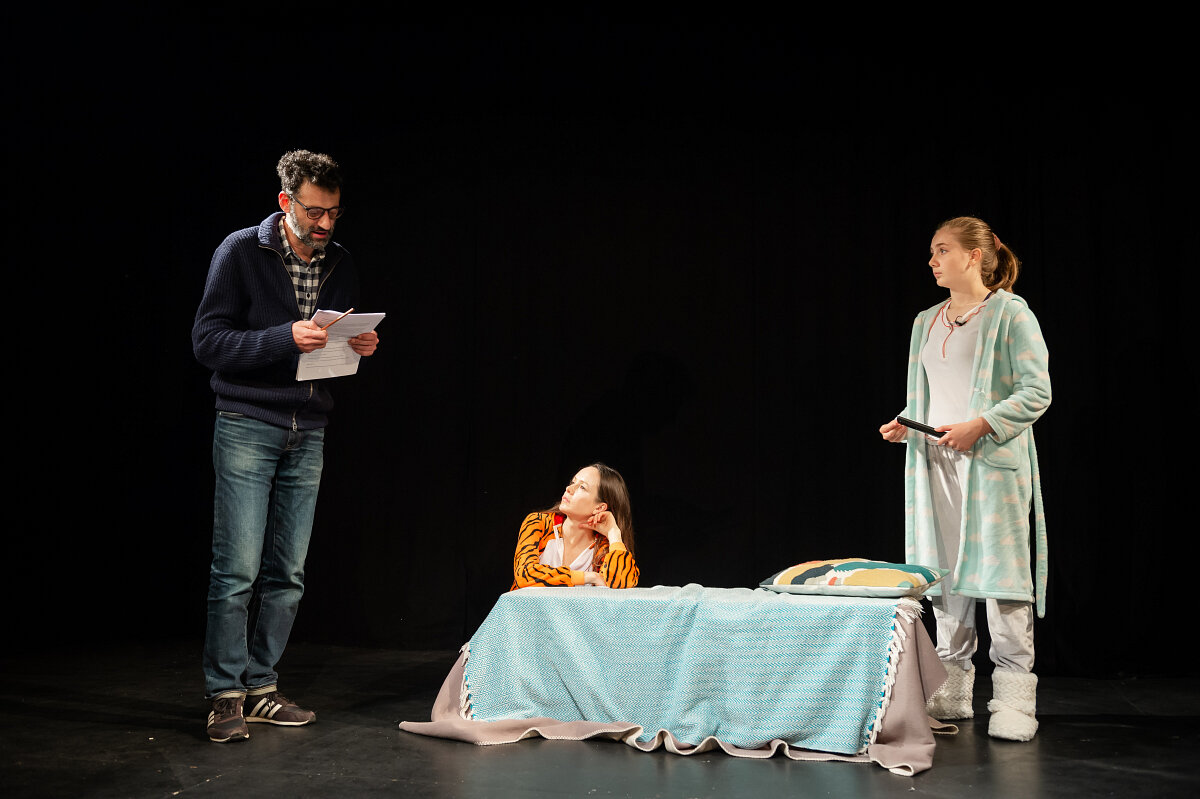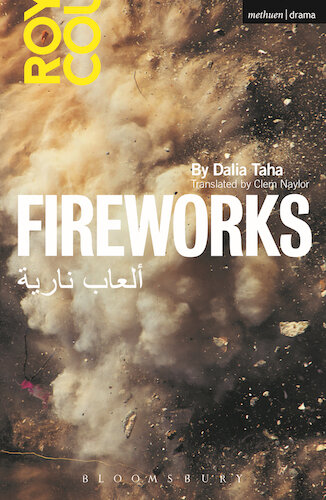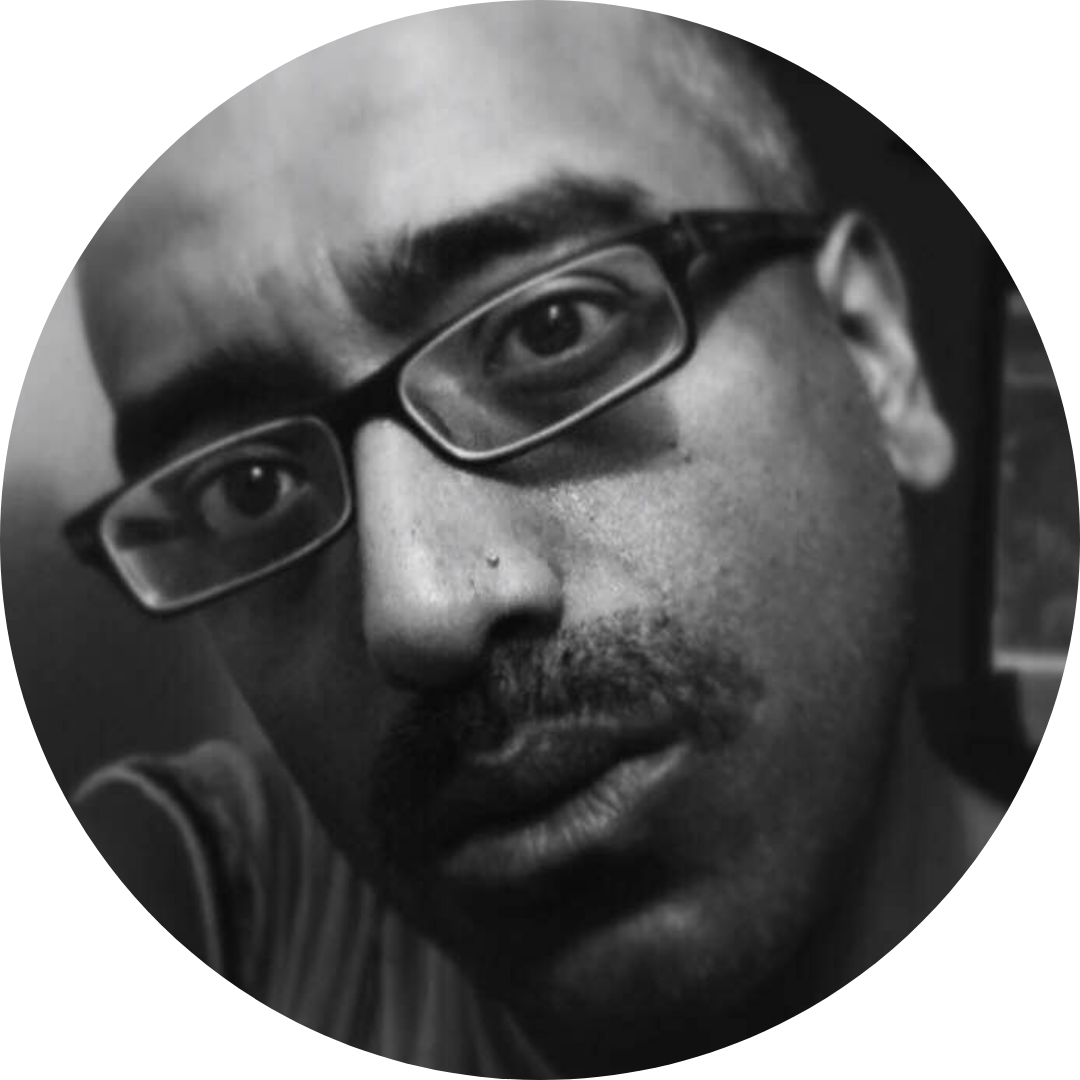Fireworks
By Dalia Taha
Translated by Clem Naylor
Genre: Drama, Documentary theatre
Key scenes: Scene 7 (1M, 1F), Scene 14 (1M), Scene 16 (1M, 1F)
Number of characters: 6
Age recommendation: 12+ (death)
Country: Palestine
Original language: Palestinian Arabic
Translation 1: English Translation by Clem Naylor
Translation 2: English Translation/Adaptation by Hannah Khalil, set in Northern Ireland
Description:
There's no-one in the streets but us. You run that way and I'll run this way. Whoever gets back to the front door first without getting shot, wins.
In a Palestinian town eleven-year-old Lubna and twelve-year-old Khalil are playing on the empty stairwell in their apartment block. As the siege intensifies outside, fear for their safety becomes as crippling as the conflict itself.
Dalia Taha's play offers a new way of seeing how war fractures childhood.
Fireworks (Al'ab Nariya) is part of International Playwrights: A Genesis Foundation Project and received its world premiere at the Royal Court Theatre, London, on 12 February 2015.
Videos
+ DETAILS
Play Title in Original Language: Al' ab Nariya
Author(s): Dalia Taha
Publisher: Bloomsbury, 2015
World Premiere (in the Engl. lang.): Royal Court Theatre, London, UK, on 12 February 2015
Translation 1 (English): Clem Naylor
Translation 2 (English adaptation set in Northern Ireland): Hannah Khalil
Essay Writer: Gabriel Varghese
Education Pack Resource Writer: Alia Alzougbi
Filmed excerpt director: Omar Elerian
+ CHARACTERS
KHALID, a man in his early forties. He tries to protect the innocence of his daughter Lubna by turning the horrors of war and death into happy stories.
NAHLA, Khalid’s wife, late thirties. She grieves over her dead son, Ali, who was killed by Israeli soldiers 6 months earlier.
LUBNA, Khalid and Nahla’s daughter, eleven to twelve years old. A bright girl who hits puberty in the play. She is endlessly inquisitive as she tries to make sense of the loss of her brother and the violence she witnesses around her.
AHMAD, a man in his late thirties, he collects radios and electronics, claiming that he was once an electrician, but has a clear plan for their use.
SAMAR, Ahmad’s wife, mid to late thirties. She protects her son fiercely, reinforcing the imaginary worlds he creates by joining in his games.
KHALIL, Ahmad and Samar’s son, twelve to thirteen years old. At the cusp of puberty, he finds comfort in make-believe worlds to escape the realities of violence around him, which he mirrors with violent outbursts.
+ ESSAY EXCERPT
Fireworks is situated in an unnamed Palestinian town ‘in the early part of the twenty-first century’, meaning that it takes place sometime during the second intifada (2000-2005). The word intifada is usually translated as uprising, but in the original Arabic it refers to the act of ‘shaking something off’, much like you would shake dirt off your shoes. When used in the context of Palestinian human rights and national liberation, intifada is a major concept referring to an organised, widespread uprising against Israeli occupation. The term includes both armed and unarmed acts of resistance.
Read and download the full essay here
+ TRANSLATOR'S NOTE: Clem Naylor
I was drawn to the disturbing atmosphere that Dalia creates in FIREWORKS. As the situation and the characters deteriorate, this atmosphere becomes more intense, but the play is permeated with a sense of unease right from the start. I think it’s partly the nature of the language, which is simple and stark but also full of blood and burning. It’s partly the dialogue, which can feel surreal or disjointed or darkly comic, and which gives a sense of people pushed into tension with each other by their situation. It’s partly also the broader uncertainty – we don’t really know where we are and often it’s unclear who or what people are talking about.
I enjoyed translating the play. I found that Dalia’s dialogue worked well with my natural tendency towards a pared back style. The translation process was collaborative and iterative. Because the script was new, we did a lot of editing and new writing until shortly before it was performed. Seeing the play in rehearsal helped me see where tweaks were needed, and observing Dalia at work helped me to understand her intentions better. For some translators, I’m sure this would sound like a bit of a nightmare – it can be nice to be able to get on with your work without constantly referring back to the writer – but for me it was good. At a basic level it made it easier to ask her questions about specific linguistic issues – I was not expert enough in the dialect that the play was written in to have been confident about the meaning of every word. More fundamentally, this proximity to Dalia helped me to deal with the challenge of translating a play about something that is so far from my experience. If I had been doing it in a more isolated way I think it could have felt like a burden; working so closely with Dalia made me more confident that I was doing it justice.
+ ADAPTOR'S NOTE: Hannah Khalil
Northern Ireland really excited me. I’m always interested to explore parallels between the history of Palestine and Ireland (because of my heritage), both countries having been divided and both undergone many years of bloodshed, fighting and struggles, which are still happening in Palestine today.
At the start of the Covid-19 lockdown I kept reminding myself that however difficult it was for me, in London, it would be much tougher for Palestinians living under occupation. I wondered hopefully whether a greater empathy with the Palestinian people might be achieved by us in the West, having had a tiny taste of confinement and restriction. Although restriction of movement is only one of many human rights violations exercised on Palestinians in the West Bank and Gaza by the Israeli government. I also wondered whether, for some inhabitants of Northern Ireland the Covid-19 measures might bring back memories of division, no-go areas and curfews.
One of the things I love about Dalia’s play is that it is so accessible – the story of parents trying to protect their children from the ugly truth about the world in which they live, trying desperately to delay the moment when they must become adults and face the full brutality of life. What could be more universal and human than that? Like Samar in Fireworks we are all trying to manage and support our children and young people in these exceptional circumstances of 2020.
Production Images
Original (Russian) & Translation 1 (English)
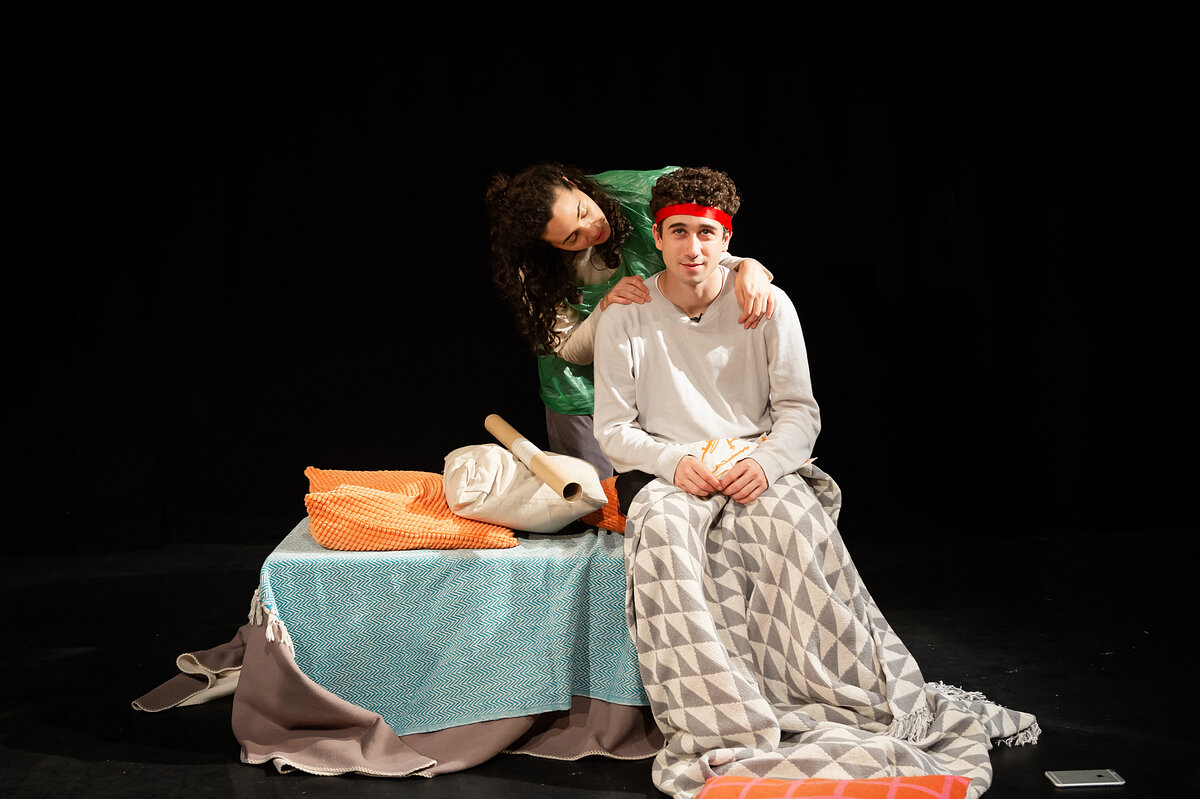
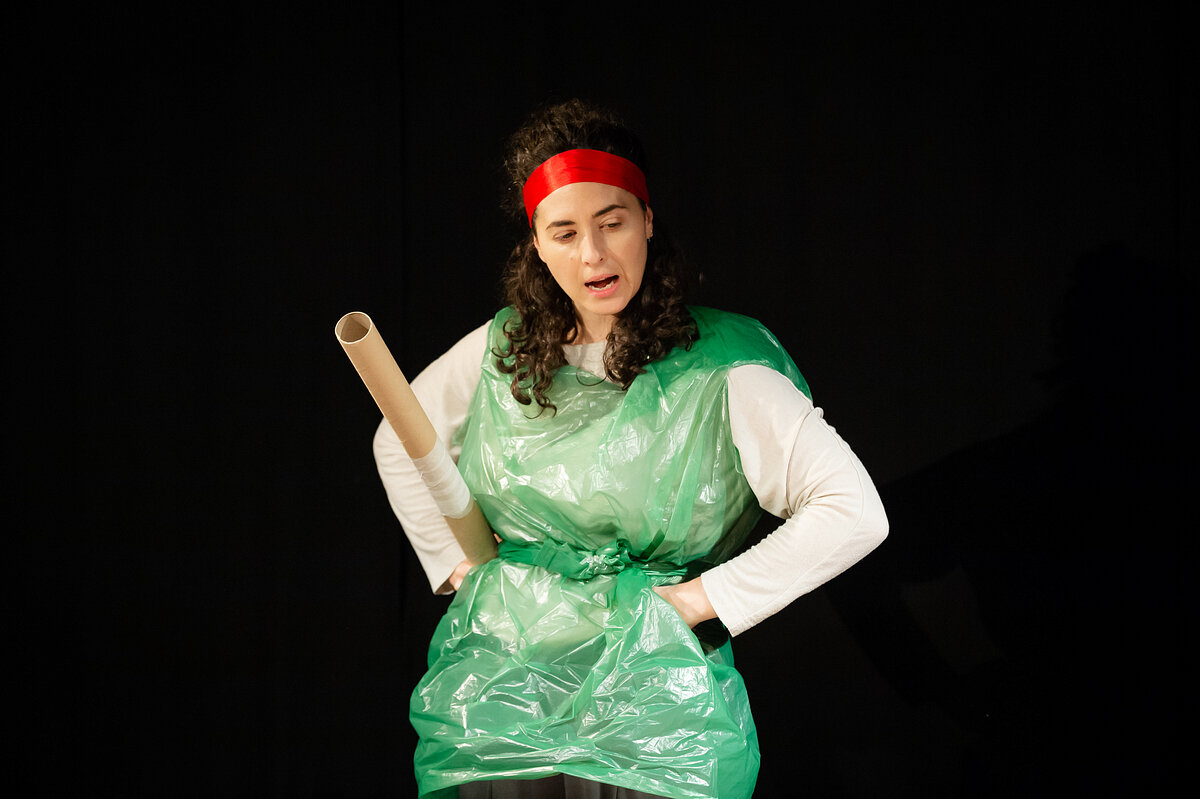
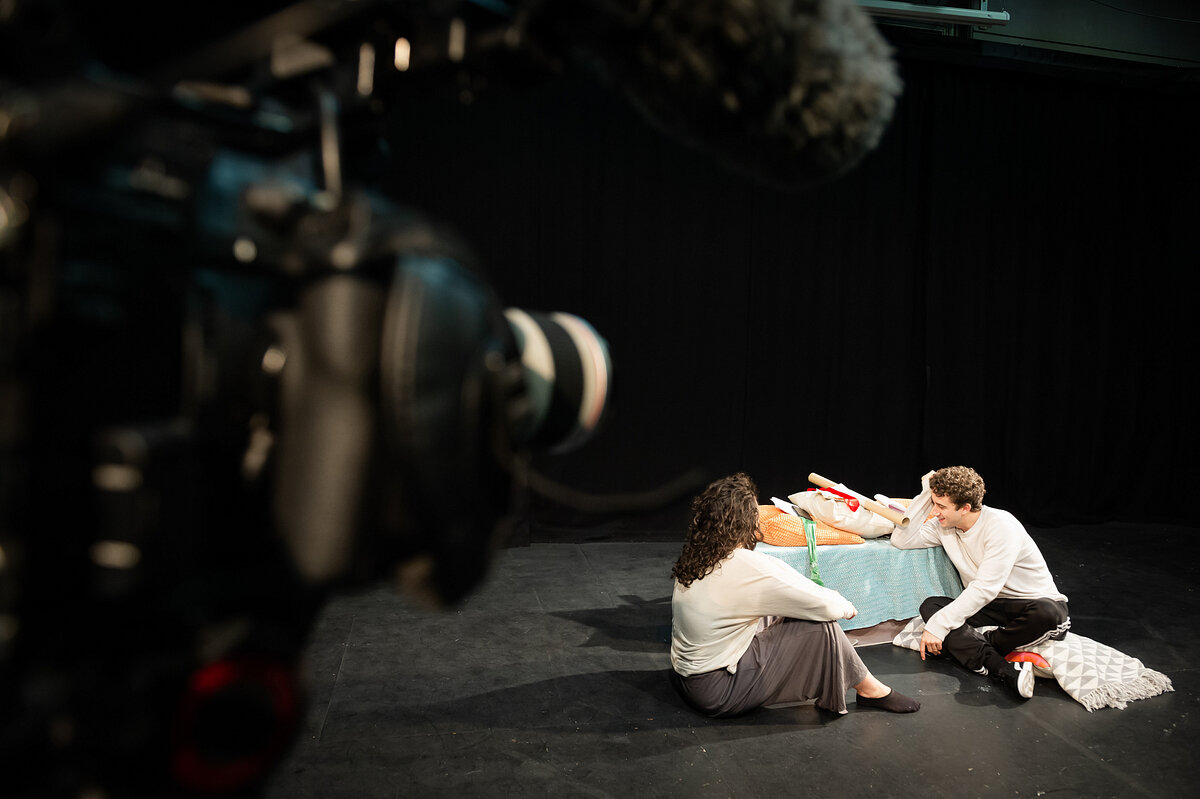
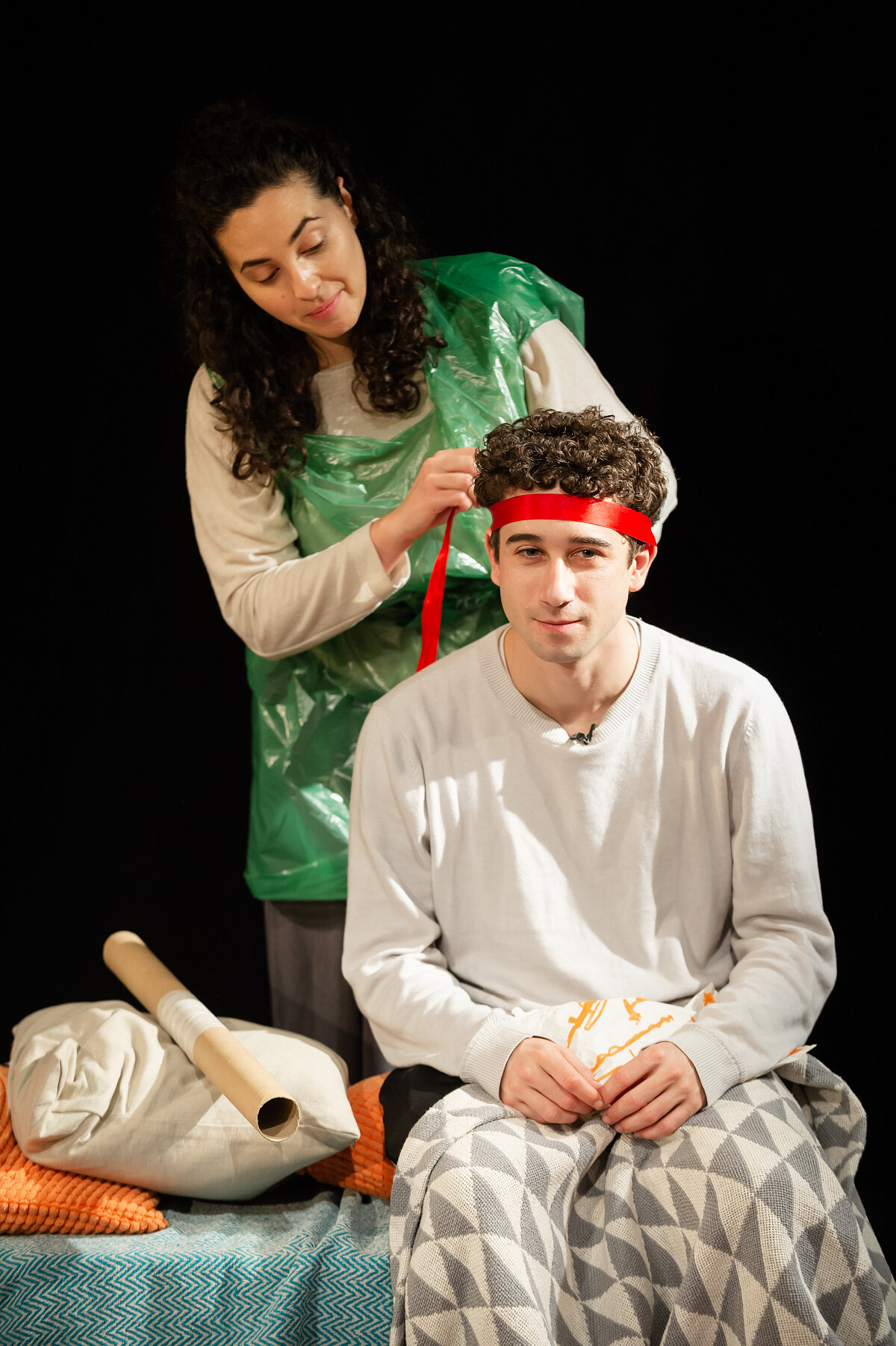
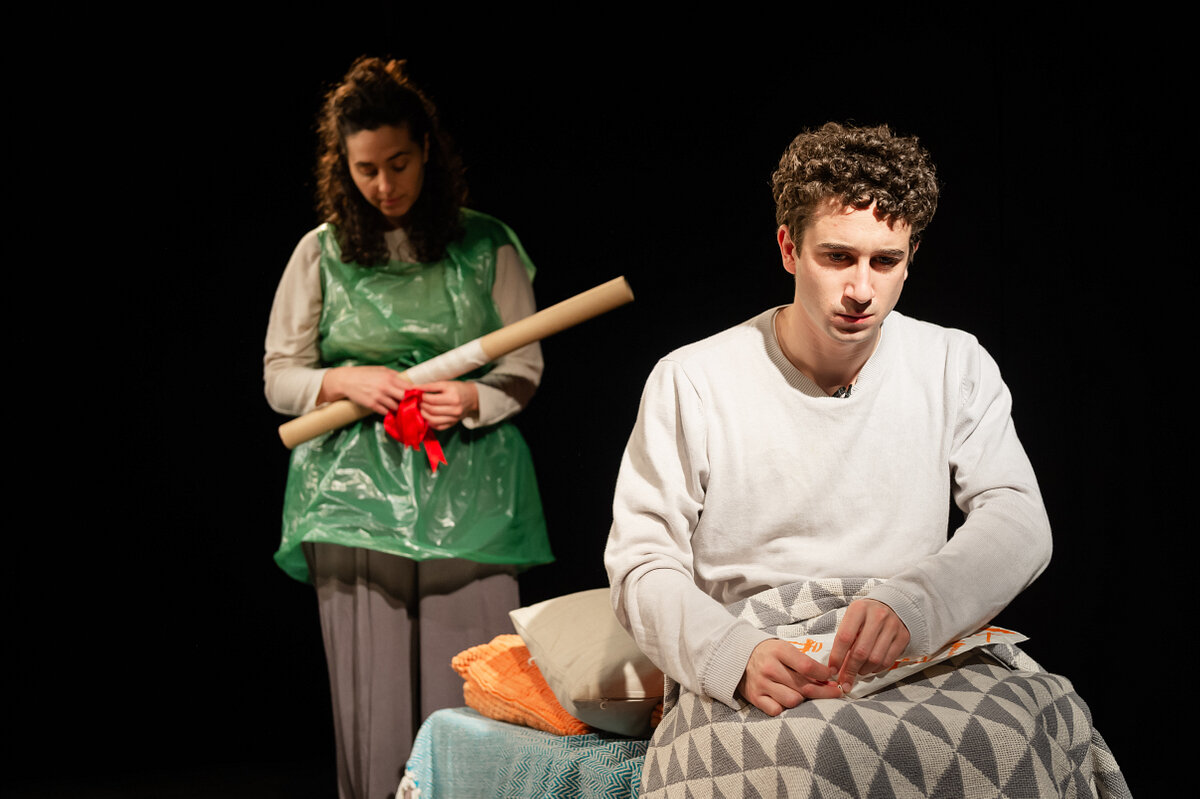
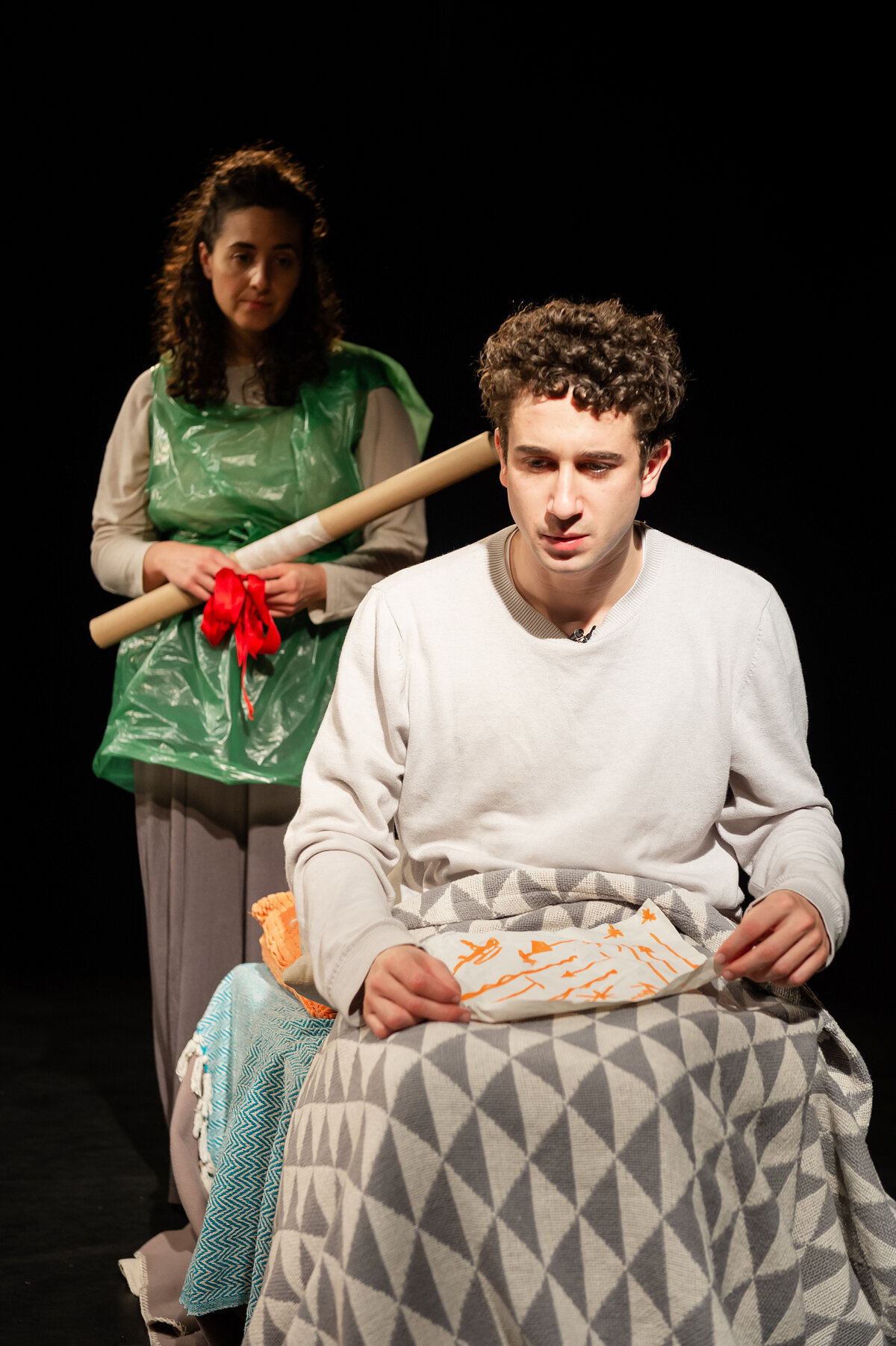
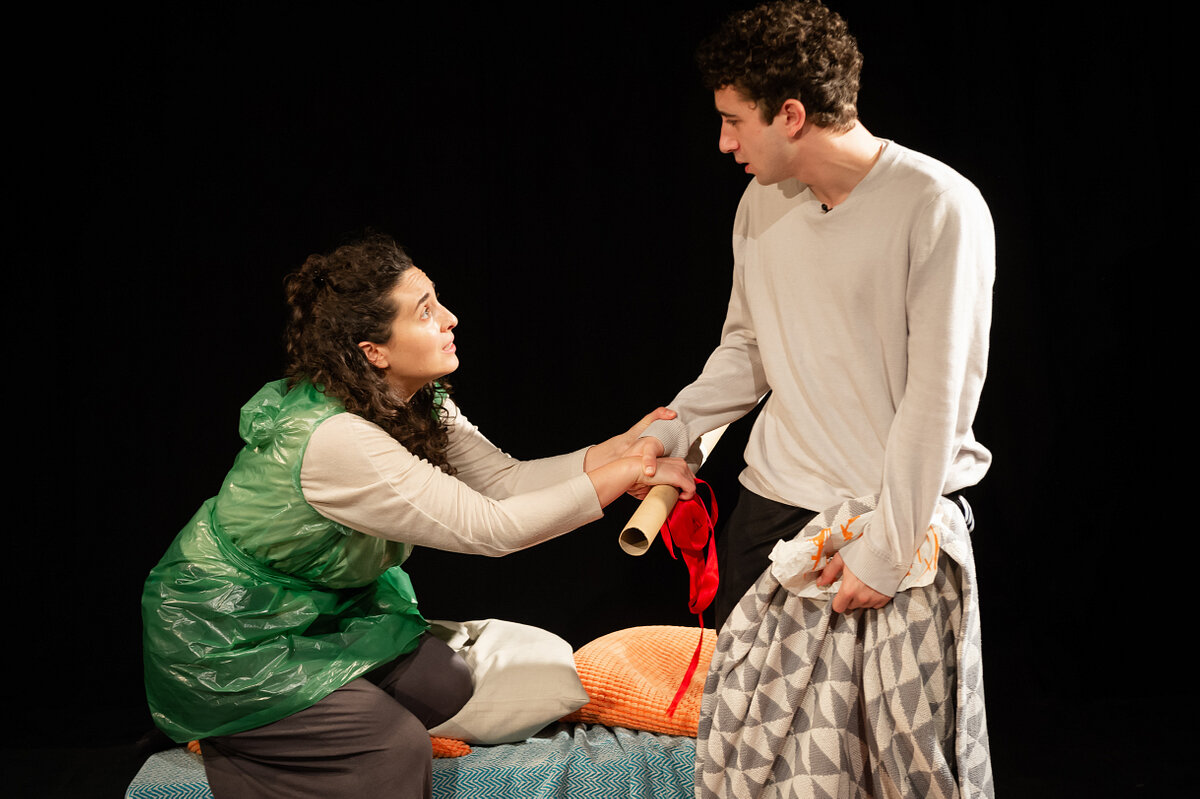
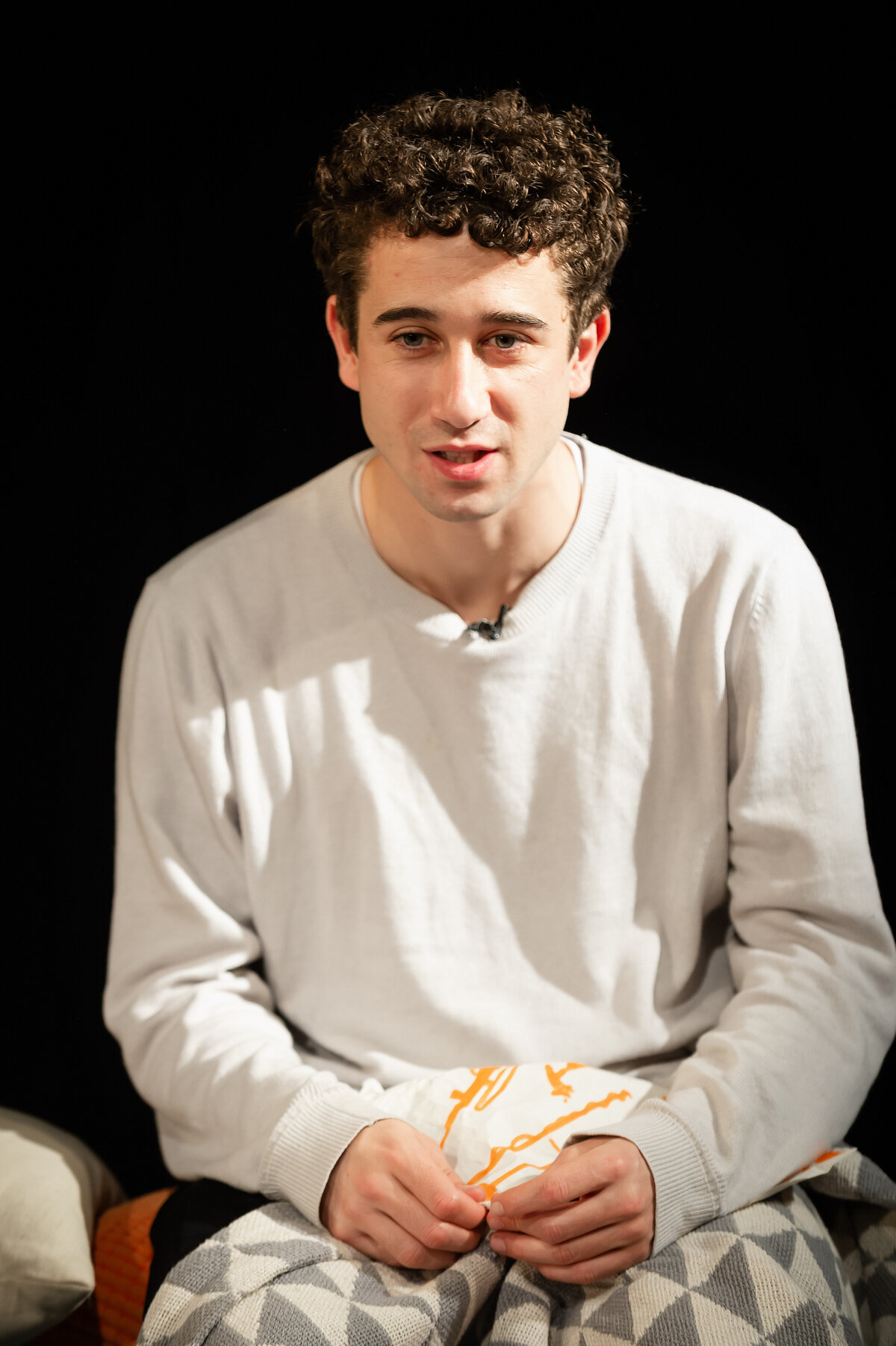
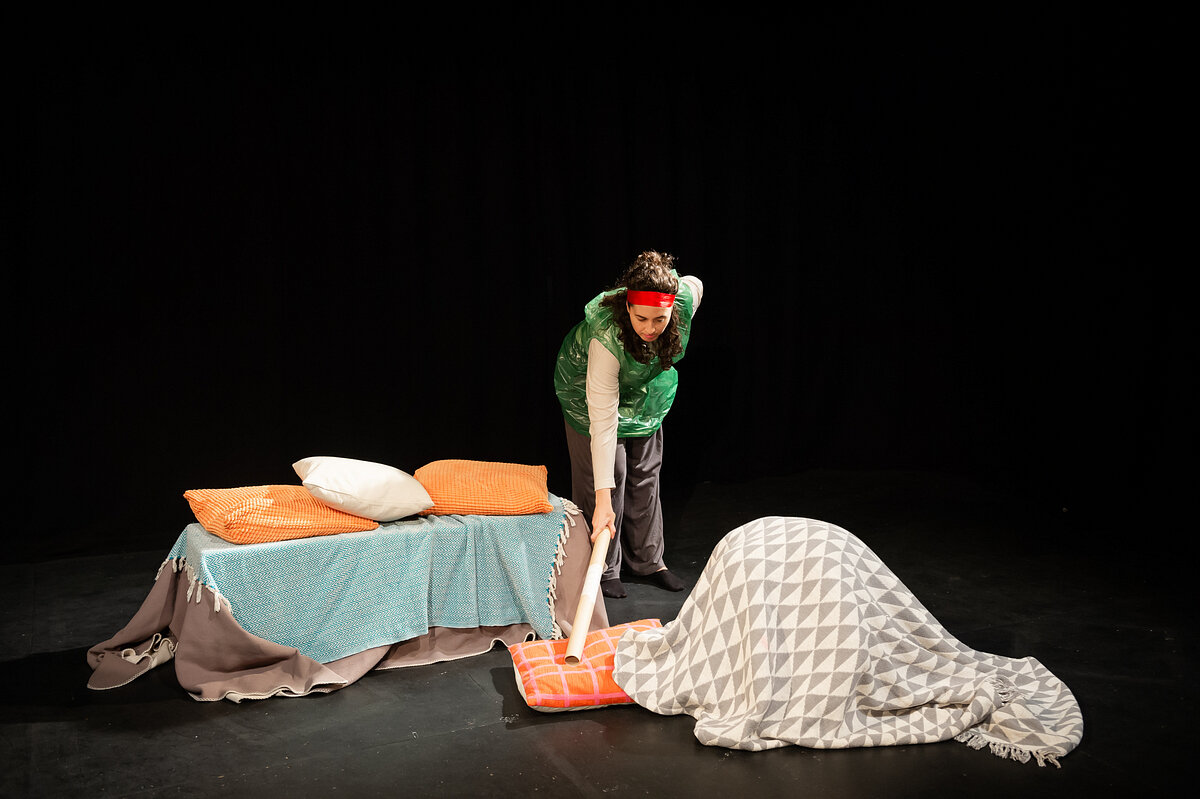
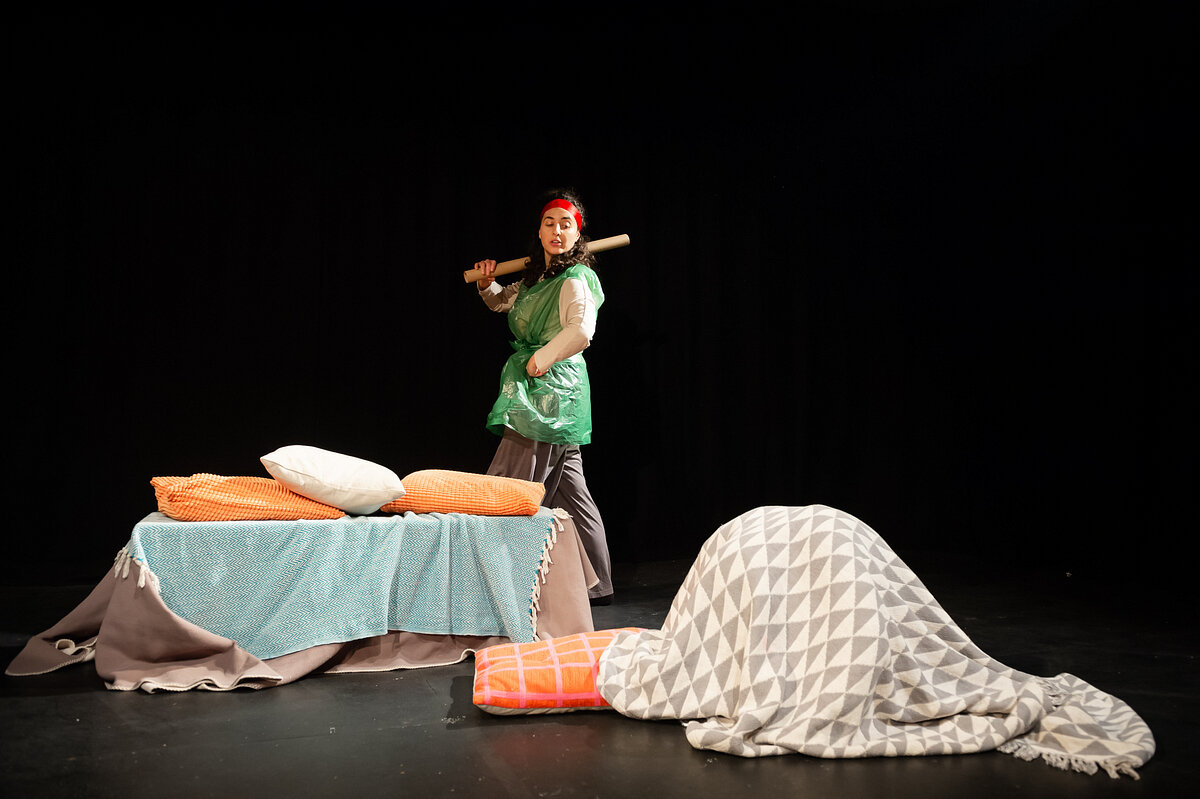
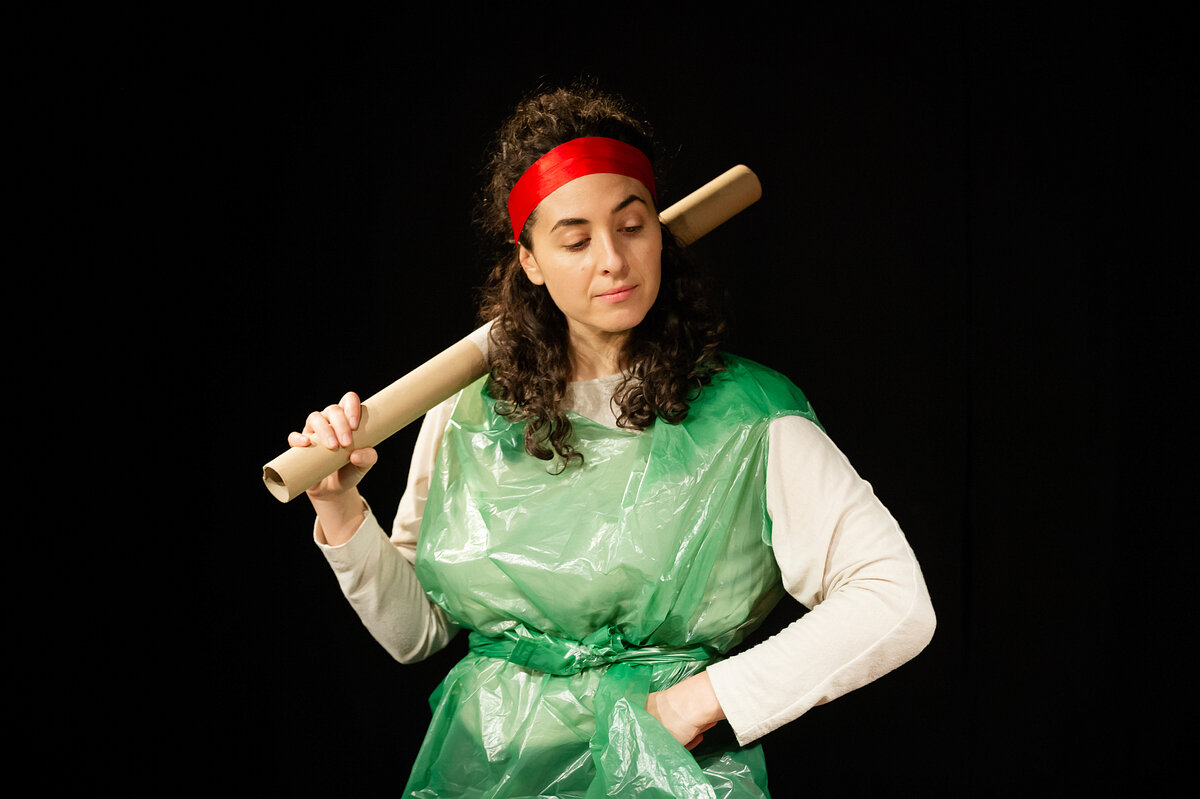
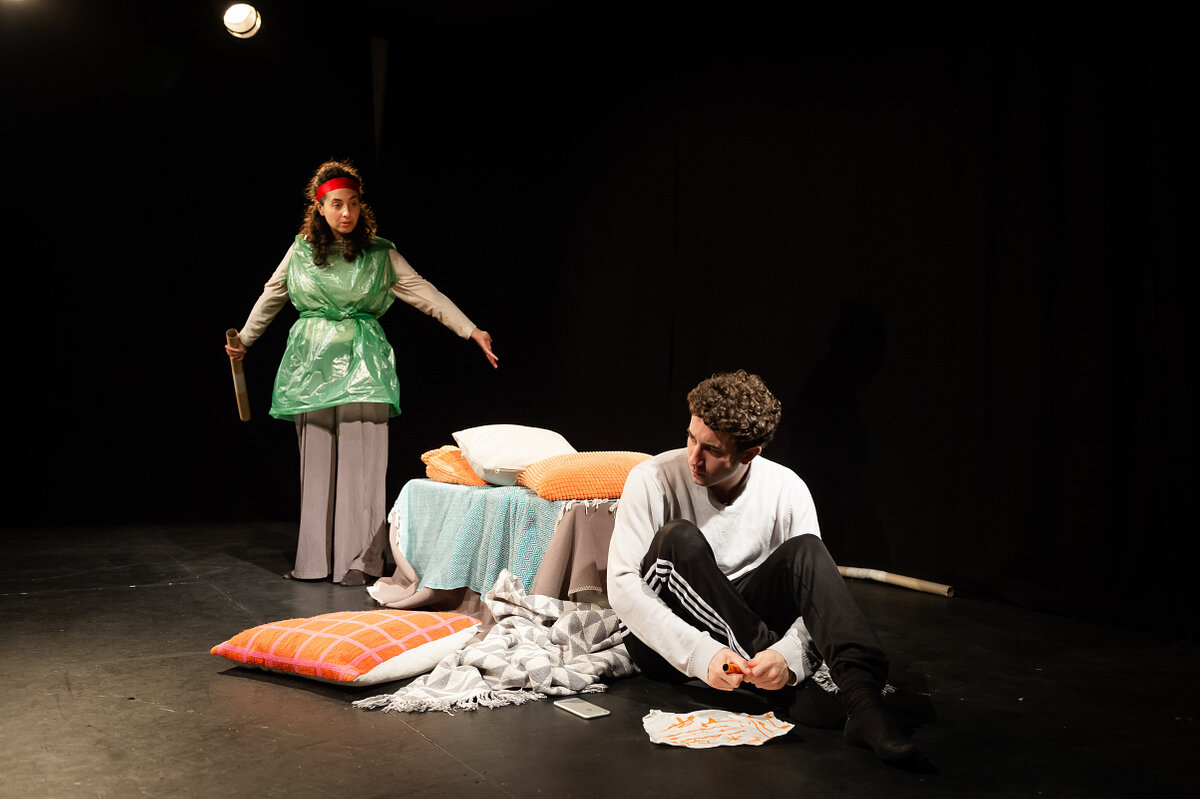
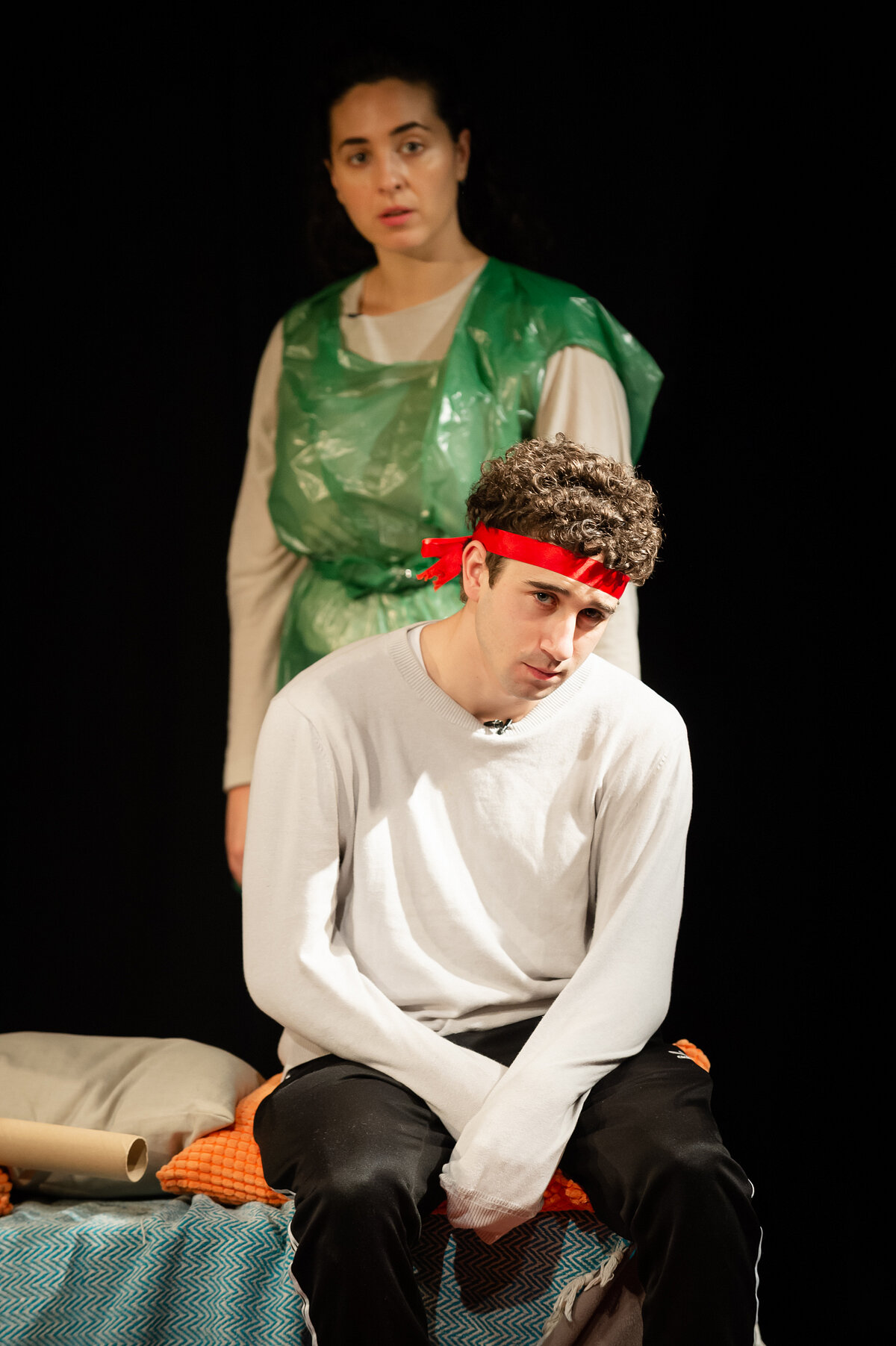
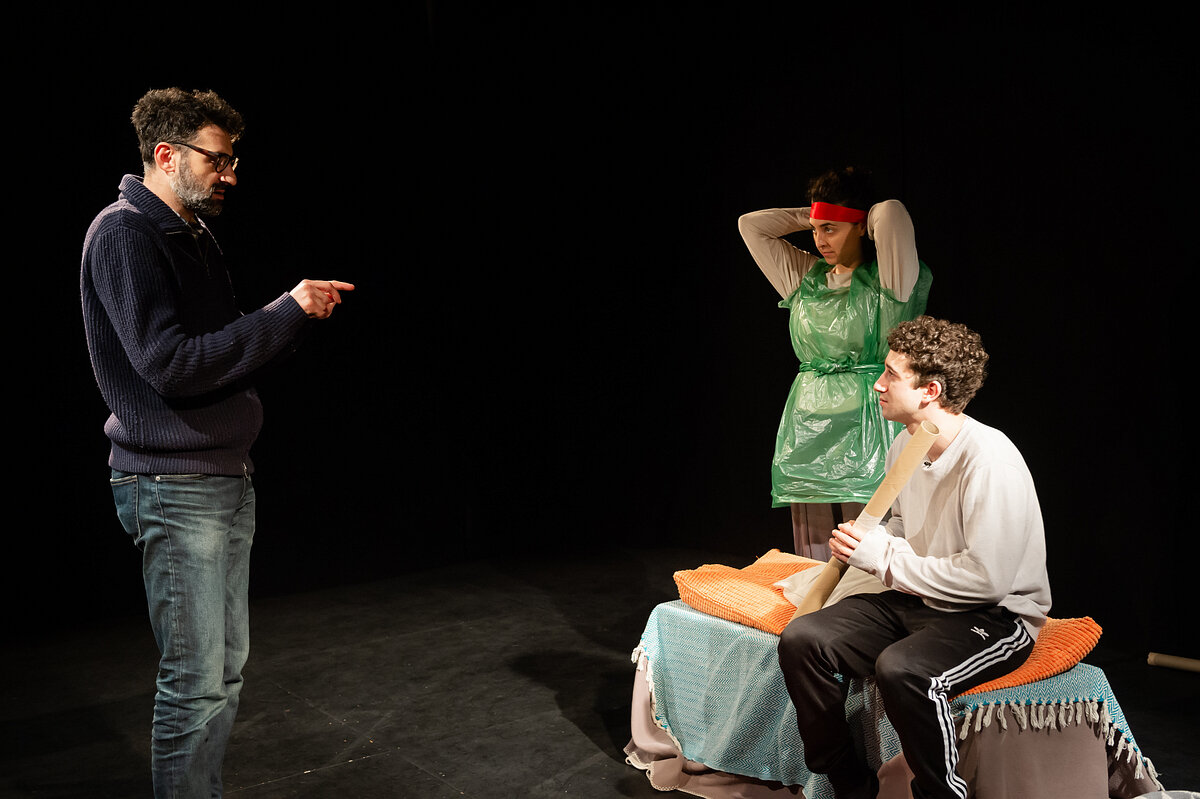
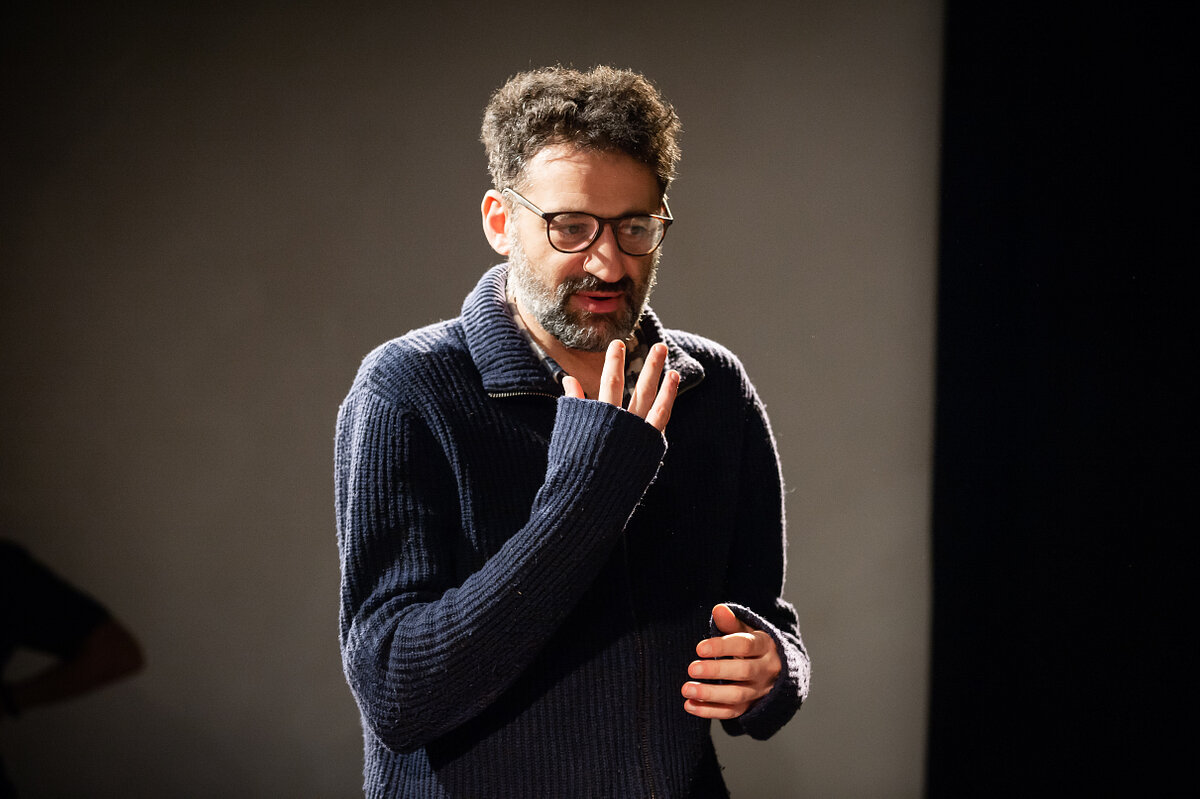
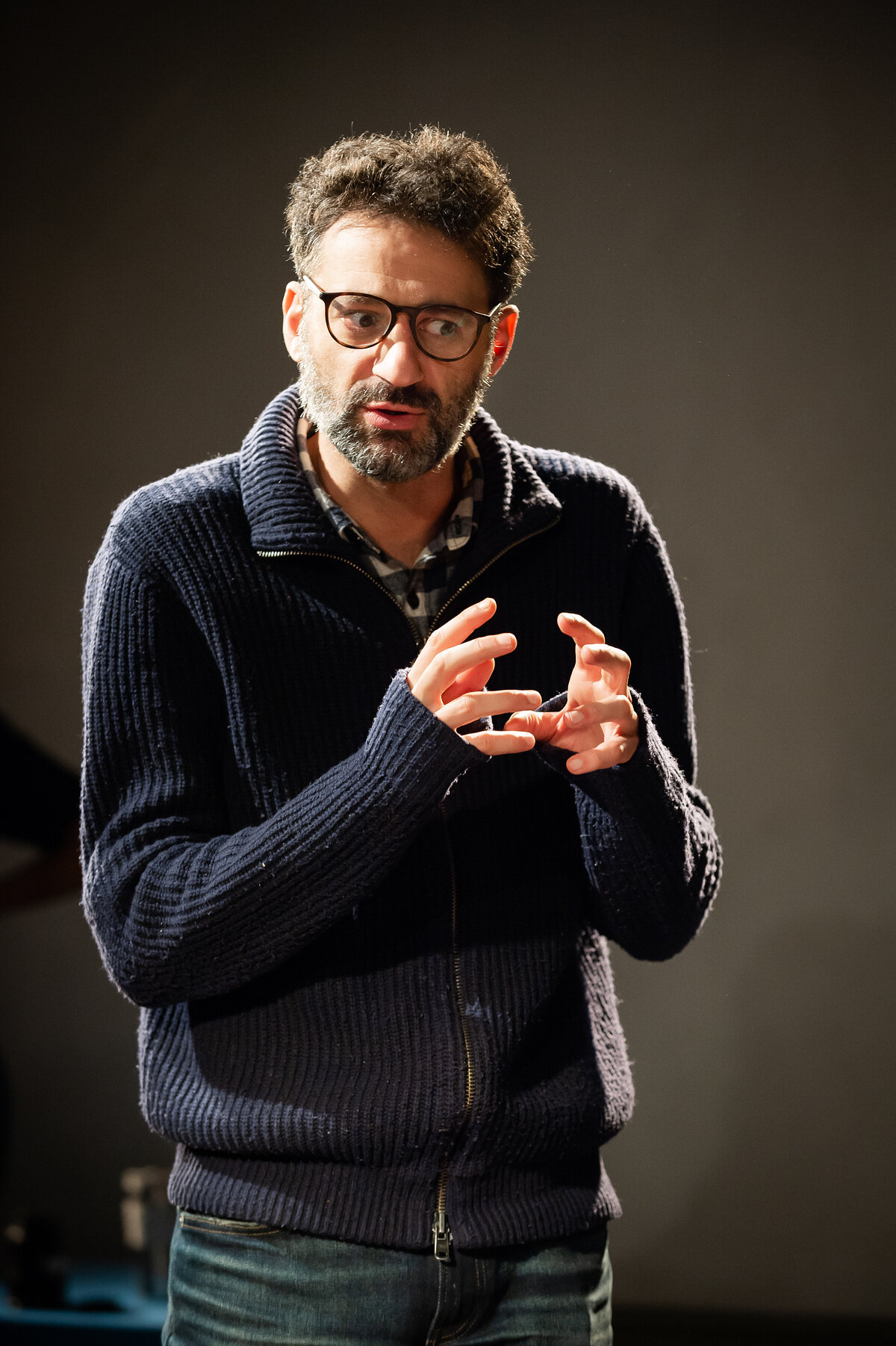
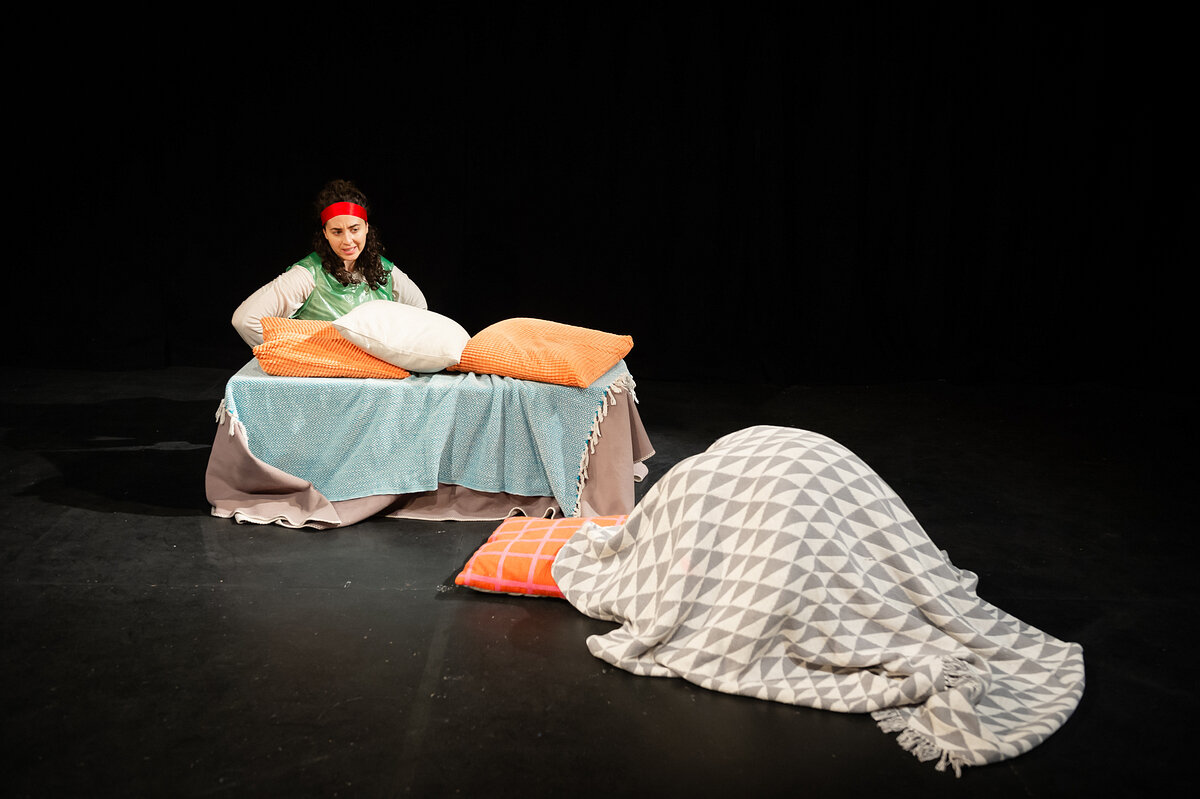
Translation 2 (English)
